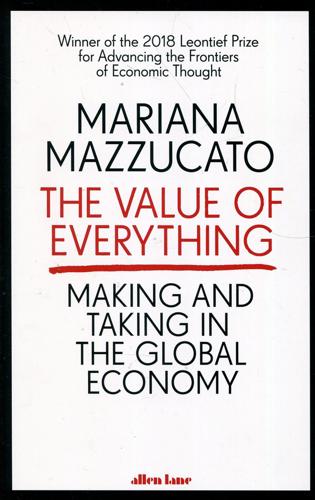
Value of Everything: An Antidote to Chaos The
by
Mariana Mazzucato
Published 25 Apr 2018
Along with this fundamental shift in the idea of value, a different narrative has taken hold. Focused on wealth creators, risk taking and entrepreneurship, this narrative has seeped into political and public discourse. It is now so rampant that even ‘progressives' critiquing the system sometimes unintentionally espouse it. When the UK Labour Party lost the 2015 election, leaders of the party claimed they had lost because they had not embraced the ‘wealth creators'.1 And who did they think the wealth creators were? Businesses and the entrepreneurs leading them. Feeding the idea that value is created in the private sector and redistributed by the public sector.
…
These new actors, from Google to Uber to Airbnb, are often described as the ‘wealth creators'. Yet this seductive story of value creation leads to questionable broader tax policies by policymakers: for example, the ‘patent box' policy that reduces tax on any products whose inputs are patented, supposedly to incentivize innovation by rewarding the generation of intellectual property. It's a policy that makes little sense, as patents are already monopolies which should normally earn high returns. Policymakers' objectives should not be to increase the profits from monopolies, but to favour investments in areas like research. Many of the so-called wealth creators in the tech industry, like the cofounder of Pay Pal, Peter Thiel, often lambast government as a pure impediment to wealth creation.9 Thiel went so far as to set up a ‘secessionist movement' in California so that the wealth creators could be as independent as possible from the heavy hand of government.
…
Many of the so-called wealth creators in the tech industry, like the cofounder of Pay Pal, Peter Thiel, often lambast government as a pure impediment to wealth creation.9 Thiel went so far as to set up a ‘secessionist movement' in California so that the wealth creators could be as independent as possible from the heavy hand of government. When Eric Schmidt, CEO of Google, was quizzed about the way companies control our personal data, he replied with what he assumed was a rhetorical question: ‘Would you prefer government to have it?' His reply fed a modern-day banality: entrepreneurs good, government bad. Yet in presenting themselves as modern-day heroes, Apple and other companies conveniently ignore the pioneering role of government in new technologies.
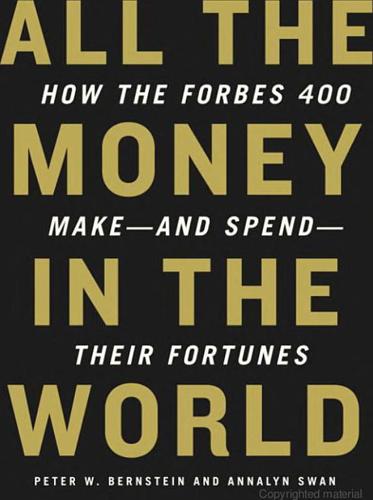
All the Money in the World
by
Peter W. Bernstein
Published 17 Dec 2008
As winner of the 2005 World Entrepreneur Award4 and informal king of the conference, Huizenga was invited to deliver the keynote speech, “An Entrepreneurial Journey: The Story of Wayne Huizenga.” Even for Monte Carlo, the glitz level was high. In the audience was a pantheon of the world’s biggest wealth creators, more than one hundred entrepreneurs from nearly forty countries. It was all the more impressive, then, that Huizenga, a college dropout who started his business with one used garbage truck, was the man standing in front of them. Think of Forbes 400 members5 and what comes to mind are tycoons such as computer titan Michael Dell, America Online’s Steve Case, eBay’s Pierre Omidyar, and Qualcomm’s Irwin Jacobs—all former winners of Ernst & Young awards, all high-tech billionaires who made fortunes on flashy, brainy businesses.
…
* * * 1995 from the pages of Forbes Paul Mellon, the banker and scion of the Mellon family, donated half of the philosopher John Locke’s library to Oxford. (1995 net worth: $1.1 billion) Michael Dell of Dell Computers has no chair in his office: “I’ve discovered that I think faster on my feet.” (1995 net worth: $740 million) James LeVoy Sorenson, inventor and producer of cutting-edge medical devices, including the computerized heart monitor, believes that sign language will become a global second language. (1995 net worth: $1.2 billion) LBO king and Revlon boss Ronald Perelman smokes five cigars a day. (1995 net worth: $4.2 billion) * * * As wealth creators, both Murdoch and Redstone sit atop gangly empires of mostly old media and entertainment (Murdoch in newspapers, TV, movies, and book publishing; Redstone in TV, radio, publishing, and movies) and new media such as cable, with just a smattering of Internet assets. Murdoch’s News Corporation50 recently spent more for Internet portals and businesses such as MySpace ($580 million) than any entertainment conglomerate before it, as Murdoch declared that the explosion of video sharing, social networking, blogging, and downloading music and movies around the world is creating a historic watershed.
…
You will have people with very little money who will squander their money, and you will have people with a little family business who will be ruined. The money just magnifies what is already there. If you are good, you can look really good; and if you are bad, you can look really bad.” Todd Millay claims it’s even more complicated for future generations. While the wealth creator became a success through a combination of luck, timing, skill, and perseverance, inheritors need all those qualities and more: “Sustaining wealth takes as much effort and perseverance and tough decisions as building it. But you have to have a totally different mind-set. You have to think about diversification and about managing risk and about protecting against the downside.”
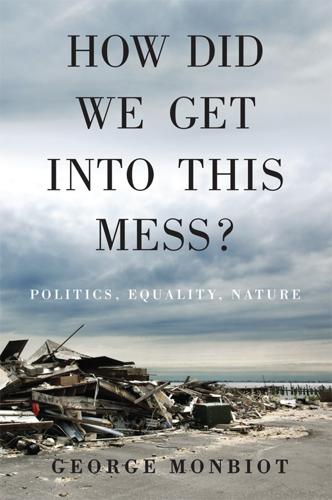
How Did We Get Into This Mess?: Politics, Equality, Nature
by
George Monbiot
Published 14 Apr 2016
The rest of us are invited, by governments and by fawning interviews in the press, to subscribe to their myth of election: the belief that they are the chosen ones, possessed of superhuman talents. The very rich are often described as wealth creators. But they have preyed upon the Earth’s natural wealth and their workers’ labour and creativity, impoverishing both people and planet. Now they have almost bankrupted us. The wealth creators of neoliberal mythology are some of the most effective wealth destroyers the world has ever seen. What has happened over the past thirty years is the capture of the world’s common treasury by a handful of people, assisted by neoliberal policies which were first imposed on rich nations by Thatcher and Reagan.
…
The more costs and corners they cut, the more profitable their business will be. In other words, the less they care, the better they will do. The perfect chief executive, from the point of view of the shareholders, is a fully fledged sociopath. Such people will soon become very rich. They will be praised by the government as wealth creators.3 If they donate enough money to party funds, they have a high chance of becoming peers of the realm.4 Gushing profiles in the press will commend their entrepreneurial chutzpah and flair. They’ll acquire a wide investment portfolio, perhaps including a few properties, so that – even if they cease to do anything resembling work – they can continue living off the labour of people like Carole, as she struggles to pay extortionate rents.
…
It is through the newspapers and television channels that the socially destructive ideas of a small group of extremists have come to look like common sense. The corporations’ tame thinkers sell the project by reframing our political language.7 Nowadays I hear even my progressive friends using terms like wealth creators, tax relief, big government, consumer democracy, red tape, compensation culture, job seekers and benefit cheats. These terms, all deliberately invented or promoted by neoliberals, have become so commonplace that they now seem almost neutral. Neoliberalism, if unchecked, will catalyse crisis after crisis, all of which can be solved only by the means it forbids: greater intervention on the part of the state.
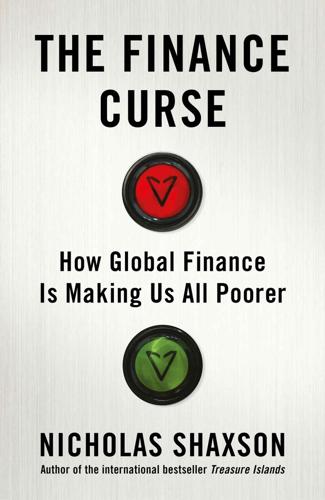
The Finance Curse: How Global Finance Is Making Us All Poorer
by
Nicholas Shaxson
Published 10 Oct 2018
While Karl Marx had focused on tensions between workers and factory owners, Veblen concentrated on a different but related struggle: between wealth creators and wealth extractors. Makers versus takers; producers versus predators. Imagine a group of old men in top hats, manipulating a Heath-Robinson-like contraption of spindly pipework perched on top of the economy, hoovering up coins and notes and IOUs from the pockets of the workers and consumers toiling away underneath.4 Generations of economic thinkers had known about this distinction, at least as far back as Adam Smith’s Wealth of Nations in 1776.5 The main problem, though, was that people disagreed about who the wealth creators were. A conservative tradition holds that they are the rich, the owners of money and capital, who build the factories, then get taxed by government, which redistributes their wealth to the poor and to the recipients of handouts.
…
He liked to picture the lives of his workers: where they lived, what they ate, their children at school, happy faces around the dinner table – the self-image of the billionaire as wealth creator, job creator. ‘Brazilians have always admired the American dream,’ he said. ‘What is happening in Brazil is the Brazilian dream, and I am the example.’ He peppered his rant with the word ‘honest’ – a counter to the widespread suspicion in Brazil that the super-wealthy are all malandros, who get rich through unfair or dirty or criminal means. The heroic, honest, wealth-creator meme that Veblen gave such short shrift to is indispensable for such people. It implies that whatever improves the fortunes of the business or the billionaire – including favourable tax treatment or smashing workers’ rights – ultimately advances the fortunes of the nation as a whole in some sort of great global race.
…
And it is a good starting point for understanding the scale of the finance curse. By now, a new question emerges: why have we put up with an overgrown sector that is making us worse off? A large part of the reason lies in a narrative we’re fed by politicians and by the many players in the City of London: that the City is indispensable, full of brilliant wealth creators, and must be pampered. This narrative is underpinned by the ubiquitous idea of ‘national competitiveness’ which has emerged in a particular and malign form in Britain and in many other countries: a form I call the Competitiveness Agenda. This narrative has pervaded all aspects of British political and economic life for decades.
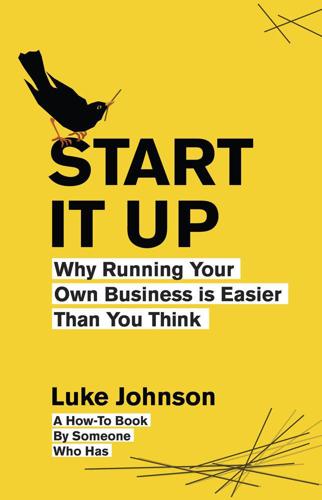
Start It Up: Why Running Your Own Business Is Easier Than You Think
by
Luke Johnson
Published 31 Aug 2011
He really was evil; I imagine that perhaps Beelzebub himself reached out from the watery depths, plucked Maxwell from the deck of his yacht Lady Ghislaine and spirited him off to hell. For Captain Bob had surely sold his soul to the devil many years before. But the Bouncing Czech is not typical of the breed. Most wealth creators retain at least a veneer of civilized behaviour. Nevertheless, when cornered or roused to fury, they can be ruthless. In 1853, the shipping and railroad magnate Cornelius Vanderbilt wrote to two former business associates, Morgan and Garrison: ‘You have undertaken to cheat me. I won’t sue you, for the law is too slow.
…
I have rarely opted for the easy path if the alternative offered the possibility of something with more fireworks. To me, achieving something novel and bold is meaningful, and practising meditation isn’t. The economist Richard Layard, who puts himself forward as an authority on happiness, says public policy should demotivate wealth creators with higher taxation, because they exacerbate the race for status. But he also says we must eliminate high unemployment. And I suspect that these two objectives are intrinsically incompatible. Entrepreneurs, for all their rivalry and dissent, are the principal engines that can create jobs. Discouraging them will only make the problem of unemployment worse.
…
I think the game also identifies the ever-present dividing line between those who ply their trade in the private sector and those who work in the public or non-profit world. For the entrepreneur, money will be first or second; for those in the state sector it will surely be last. This reveals the materialism at the heart of every wealth-creator. But is that worse than the urge to control that so stimulates those who run the police, universities, hospitals, schools, government and army? At a recent dinner party I sat next to a fairly senior politician. I asked him the power/money/recognition question, and he unhesitatingly put ‘power’ in first place.
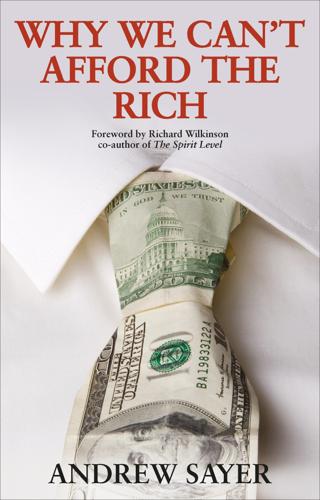
Why We Can't Afford the Rich
by
Andrew Sayer
Published 6 Nov 2014
Of course, this brief summary leaves out many qualifications, not to mention the actual argument and evidence. Some readers may agree straightaway, some may have a few objections, but others may respond with incredulity, perhaps outrage, for to claim that we can’t afford the rich is to imply that they are a cost to the rest of us, a burden. Aren’t the rich wealth creators, job creators, entrepreneurs, investors – indeed, just the kind of people we need? Don’t entrepreneurs like Bill Gates deserve their wealth for having introduced products that benefit millions? Aren’t the rich entitled to spend what they have earned how they like? What right has anyone to say their consumption is excessive?
…
• The wealth of the richest 1% in the world amounts to $110 trillion. That’s 65 times the total wealth of the bottom half of the world’s population. • Seven out of ten people live in countries where economic inequality has increased in the last 30 years. Have the rich got richer because those at the top have become more enterprising, dynamic wealth creators? Are today’s capitalists – or entrepreneurs, as they like to call themselves – so much better at leading economic development than their more moderately paid predecessors of the post-war boom? The economic data suggests the opposite. Growth rates have been slower than in the post-war boom. The rich are clearly not taking the same share of faster growth, but an increasing share of slower growth.
…
And let’s remember that it’s not uncommon for employees who come up with inventions to find that they are effectively stolen from them by their employers, who then get the benefit.152 So, at best, two cheers for innovative working capitalists. ‘They’ll just go to another country and take their money with them …’ ‘… if we tax them too much, or otherwise restrict their power.’ This point is frequently wheeled out, as if the rich were major wealth creators, possessing rare powers, and therefore people whom we must do all we can to attract. British Conservative politician John Redwood’s defence of this belief is a common one: ‘The problem is the rich do not have to hang around if you seek to make them too poor. They have the best lawyers and accountants.
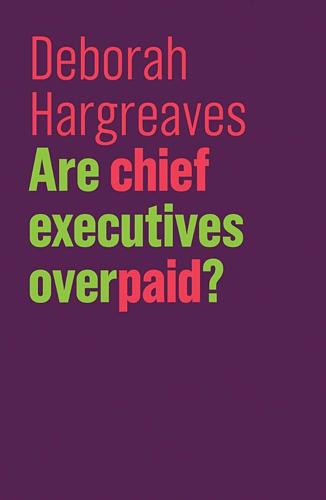
Are Chief Executives Overpaid?
by
Deborah Hargreaves
Published 29 Nov 2018
How the numbers add up Upwards ever upwards Changing climate ticks up top pay How companies work Principal–agent problem Money-making becomes sexy Recovering economy pushes up shares Time men of the year Business at the heart of government Rewarding top talent Who sets top pay Notes 2 Just Deserts? Wealth creators deserve rewards What goes up, should come down What constitutes an executive pay packet? Payment in shares Performing relatively well Rewards for failure More money for posh macs How much effect do chief executives have? Luck is important Remuneration consultants The ratchet effect Superstar executives Notes 3 Why Top Pay Matters Performance-related pay is anything but Short-term consequences of performance pay Share buybacks What chief executives really want It’s not all about money How top pay keeps down productivity Pay disparities damage morale and business reputation Trust in business plumbs the depths Notes 4 Corporate Governance Fights a Losing Battle Attempts to rein in pay New Companies Act Say on pay Shareholder Spring Shareholders are not the only ones German lessons Another attempt at change: 2013 reforms Investors look at reform Notes 5 What Can Be Done?
…
The problem here is that many executives who run large corporations are actually performing a bureaucratic rather than an entrepreneurial task, but they are being rewarded like those who build companies from scratch. In this chapter, we will look at this issue of performance-related pay. Do these incentives really make executives work harder as Mr Fairburn has argued? Would they achieve the same rate of success without the offer of ever-increasing riches? Wealth creators deserve rewards In defending his £63 million bonus award in 2016, Sir Martin Sorrell, head of the international marketing firm WPP, said the company’s market capitalization had increased by £10 billion over the past four years and the share price had more than doubled. ‘Most of my wealth, if not all of it, is and has been for the last 31 years tied up in the success of WPP.
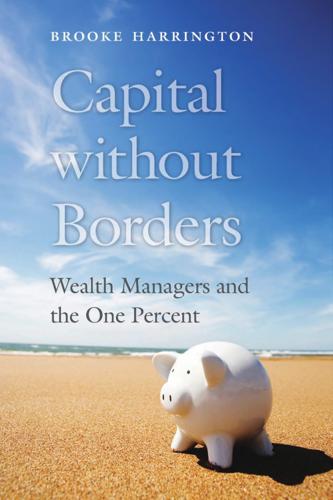
Capital Without Borders
by
Brooke Harrington
Published 11 Sep 2016
He turned the image of the rapacious tax avoider on its head by comparing his clients to harmless but sensible squirrels: Social democracy is creating too big demands on the wealth creators. That must be obvious to you in academia. You can’t get voted in now unless you support massive entitlement programs, because too many people receive them. With the result that governments now need an ever-increasing share of GDP from the producers to fulfill their promises. So naturally the wealth creators, like squirrels collecting their nuts, are scaling back; they’re saying to themselves that they don’t want to collect as many nuts next year, because the government just takes them away.… It’s nature, people don’t like the fruits of their labors taken away so arbitrarily.
…
The squirrel says, “You know what, I did pretty well last year and stashed all my nuts in that tree, but the government knows where I live and took them all away. So I’m going to bury them in the woods where no one will find them and go occasionally when no one is looking to collect them.” This leads wealth creators to engage in the shadow economy, and so forth. In other words, from Louis’ perspective, the world’s wealthiest people aren’t benefiting from the exploitation of legal loopholes or free-riding on honest taxpayers. On the contrary, as he sees it, the wealthy are the ones being exploited. Louis and some of his colleagues see themselves as acting to mitigate this injustice.
…
To many wealth management practitioners, this gives the OECD and other institutions seeking to crack down on tax avoidance the air of hypocrisy. Louis, one of the London-based wealth managers, remarked that “on the one hand, they are pro–free trade in Brussels, but they are desperate to stop it. Governments were used to pulling the strings, but now they’re bankrupt and they are dependent upon the wealth creators. That really is the crux of the matter. And you’ve got people in Brussels desperate that there is tax leakage all over the place—that they can’t control people’s mobility in an era of increasingly easy jet travel, lack of border controls, et cetera.” This conflict has been particularly heated in the aftermath of the 2008 financial crisis and the subsequent euro zone banking crisis, both of which have left governments scrambling for tax revenue and eager to crack down on tax avoidance.
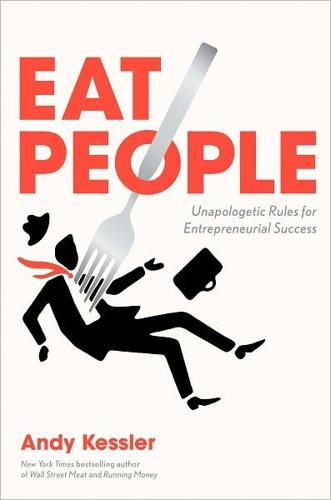
Eat People: And Other Unapologetic Rules for Game-Changing Entrepreneurs
by
Andy Kessler
Published 1 Feb 2011
Interest rates are sometimes used in order to try to create just the right amount of money, with the Fed looking at prices—consumer prices and producer prices—as a surrogate for the price level. Prices are everything. Even though lower costs of computers and cell phones and LCD TVs is a positive for the economy and a wealth creator as the productive uses of technology always create wealth, it is often interpreted as deflationary, or at least disinflationary, and perhaps as our techno-toys get cheaper, interest rates are cut to “stimulate” the economy. Sometimes, when too much money is created, it doesn’t show up in consumer or producer prices, but flows into the stock market, or housing, and it appears to everyone as new wealth.
…
You’ll be rewarded with wealth . . . and the personal satisfaction that what you did mattered, even if no one else sees it that way. It’s more important now than ever. There are government deficits as far as the eye can see, a sea of red ink. Debt is being laid on to distribute to Have-nots today. We need more Makes, more Hackers, more wealth creators. I know, you know, we all know that much of that productive wealth is going to be redistributed, but don’t let that discourage you. Redistribution takes many forms. Taxes and deficit spending are only the most blatant. Regulations favor the status quo and the political entrepreneur who has his hands in everyone’s pockets.
…
See Virtual pipe Piracy, of digital products Pirate Bay Political entrepreneurs becoming examples of failure of media moguls as operation of Sponges created by Prague Stock Exchange Prediction markets Prevailing wage laws Price, and horizontal integration Procter & Gamble Productivity defined jobs, eliminating with technology wealth accumulation with. See Productivity and wealth Productivity and wealth Creators of economic principles and efficiency and exceptionalism guaranteed profits and horizontal integration jobs, hierarchy of jobs, replacing with technology and money supply non-productive workers, types of workweek over time Profit as business driver. See also Productivity and wealth; Wealth defined and dropping costs and greed issue Project Natal Prosperity, negative effects of Qualcomm Raduchel, Bill Railroad workers, retired, as disability recipients Ramsey, Dave Reddit Retail industry, profits, rise of Retail Link Returns, highest, and sources of capital Ricardo, David Robber barons Rockefeller, John D.
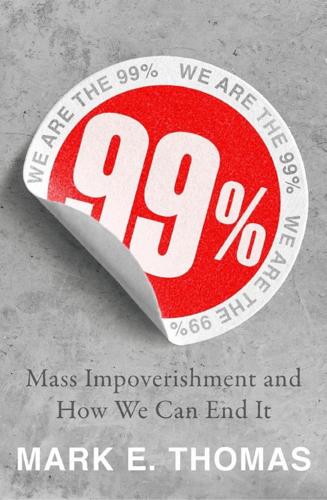
99%: Mass Impoverishment and How We Can End It
by
Mark Thomas
Published 7 Aug 2019
I don’t want an alternative Wealth creators See ‘job creators’. The rich Armed with this phrasebook, we can see that when a politician says: Given the profligate way our predecessors ran the country and the enormous levels of debt we are consequently saddled with, it is vital that we manage responsibly to restore growth and stability to our economy. We will not shrink from tough decisions. We are resolutely pro-business, pro-families and pro-hard work. For too long hard-working families have been paying for scroungers and shirkers – from now on the rewards will go to the wealth creators. Even if they are well-intentioned and believe every word of what they say, the practical impact of their plans is much closer to the paragraph below: Given that there was a Global Financial Crisis caused by ineffective regulation of the banking and shadow banking sectors, we have decided to respond irresponsibly even though this will damage the growth and stability of our economy.
…
In considering US mass impoverishment, what happens in China is a red herring. REVERSAL OF ROLES In recent years, an increasingly common rhetorical tactic appears to be inverting the roles of exploiter and exploited. In the United States, there has been talk of ‘makers and takers’, the makers being the wealth-creators and the job-creators (see below) whose hard work is exploited by the takers, who pay far less tax and may even receive tax credits. In the United Kingdom, the same concept is denoted by the phrase ‘workers and shirkers’. As we saw in Chapter 3, in the US, the ‘makers’ have taken more than 100 per cent of the benefit of the country’s economic growth for the last thirty-five years, leaving the ‘takers’ poorer than their parents were a generation ago.
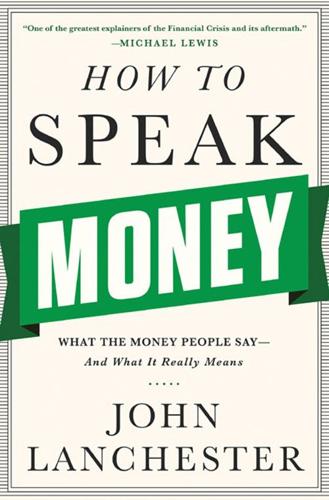
How to Speak Money: What the Money People Say--And What It Really Means
by
John Lanchester
Published 5 Oct 2014
It involves policies that are designed to favor business, entrepreneurship, and the individual; to reduce the role of the state; to cut public spending; to increase the individual’s possibilities and responsibilities, both for success and for failure; to promote free trade, and accordingly to eliminate protectionist barriers and tariffs; to reduce the roles of unions and collective bargaining; to minimize taxes; to pursue policies that encourage wealth creators and to trust in the process whereby that wealth trickles down to other sectors of the economy; to move enterprises from public to private ownership. In the background of these specific policies are philosophical positions that are concerned, in the final analysis, with the role and importance of the individual.
…
It follows from this that the individual’s potential is central to how the society, and following on from that an economy, should be structured. The economy should be arranged to allow individuals to maximize their potential. The practical promise made is that if you get government out of the way of wealth creators, the wealth they create will ultimately benefit everybody: the rich pay a lot more tax than the poor, for a start, and they spend a lot more money than the poor too, and both taxes and the money spent benefit the whole society. So it’s like a magic trick: you benefit the collective good by allowing people to selfishly maximize their own gains.
…
Just for reference, across the 500 biggest companies in America, the current multiple is that CEOs are paid 204 times more than their average employee.88 In the cheap seats, we’re often told that though people are increasingly furious about rising inequality, the most important thing is not to scare the “wealth creators,” because if we do, they’ll all move to places like London and Switzerland. But hang on: London and Switzerland are starting to have the same sorts of conversations that are happening in the USA. So where then would they go? The answer, I suspect, is that most of them wouldn’t go anywhere. A few bankers might head off to places like Singapore and Hong Kong, but that certainly wouldn’t be the end of life as we know it.
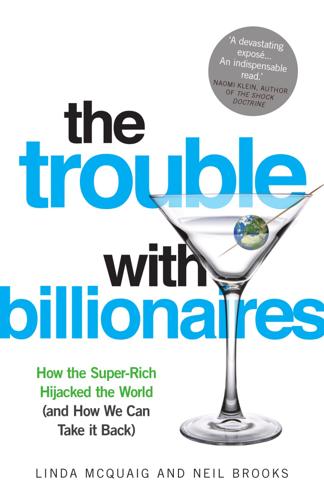
The Trouble With Billionaires
by
Linda McQuaig
Published 1 May 2013
In an interview with the Sunday Times in November 2009, Blankfein steadfastly defended his company and himself, explaining that he was just a banker ‘doing God’s work’.1 The tax hike that raised the top income tax rate to 50 per cent earlier that year had led to similar threats of departure from members of the UK elite. Theatre impresario Sir Andrew Lloyd Webber had appealed to the public to reject what he characterized as a tax increase on those who create wealth: ‘The last thing we need is a Somali pirate-style raid on the few wealth creators who still dare to navigate Britain’s gale-force waters.’ Film star Sir Michael Caine echoed the outrage, threatening to leave Britain if taxes at the upper end went even 1 percentage point higher.2 In a sympathetic Telegraph article about Michael Caine’s tax complaints, journalist Iain Martin noted that Micahel Caine, the son of a charlady and a Billingsgate fish market porter, personified the rags-to-riches success that the government should be trying to encourage.
…
The rising wealth and power of the corporate elite has allowed it to reshape public discourse, and to influence popular attitudes about the economy and government. Through its well-funded think-tanks and media empires as well as its increasing influence within universities, the elite has managed to establish the ideology of neoliberalism as the dominant paradigm. This has led to the celebration of the rich as ‘wealth creators’ whose goodwill must be constantly cultivated, lest they be discouraged from investing. The central theme of this ideology has been the need to free up (so-called) market forces from the controlling hand of government. This has boiled down to a simple notion – government bad, private sector good – that has become the mantra of our times, and the guiding force in reshaping public policy.
…
Altogether, Posner suggests that the relationship between the CEO, the members of the board of directors and the firm’s auditors typically involves a great deal of ‘mutual back-scratching’.9 Of course, the cosy nature of corporate boards is nothing new. But in the early postwar years, social disapproval of excessive greed acted as something of a restraint. With that disapproval largely set aside in recent decades – indeed replaced with a culture that reveres ‘wealth creators’ – there’s been nothing to discourage corporate boards from indulging themselves. The problem has been compounded by the tendency of corporate boards to match what other corporate boards are doing. ‘We pay our executives not on the basis of performance, but on the basis of peer group,’ notes John C.
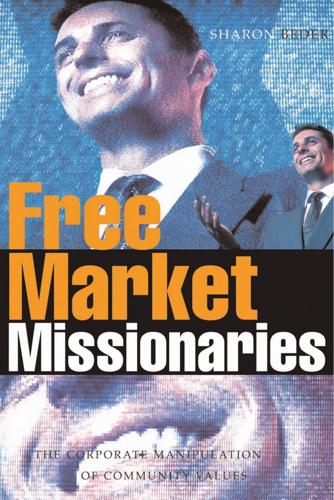
Free Market Missionaries: The Corporate Manipulation of Community Values
by
Sharon Beder
Published 30 Sep 2006
This deprives them of the ability to protect and fight for their self-interest. NOTES 1 National Council on Economic Education, ‘Economic Literacy’, Business Week Special Advertising Section, 1999, www.businessweek.com/adsections/education/ econlit/econhome.htm. 2 Michael J. Caslin, ‘Where Will Our Next Generation of Entrepreneurs, Our Next Generation of National Wealth Creators and Manufacturers Come From? A Call to Action for the Development of an Entrepreneurial Culture for All Americans’, New York, National Foundation for Teaching Entrepreneurship (NFTE), 2 June 2004, p13. 3 National Council on Economic Education, ‘About NCEE: Campaign for Economic Literacy’, National Council on Economic Education, www.ncee.net/cel/ accessed 25 July 2004. 4 Ibid.; National Council on Economic Education, ‘National Council on Economic Education’, www.nationalcouncil.org/ accessed 1 June 1998; National Council on Economic Education, ‘About NCEE’. 5 National Council on Economic Education, ‘About NCEE’; National Council on Economic Education, ‘Affiliated Councils & Centers’, National Council on Economic Education, www.ncee.net/network/network.php accessed 25 July 2004; Economics America, ‘Economics America’, www.economicsamerica.org/schools.html accessed 1 June 1998. 6 National Council on Economic Education, ‘Economics International’, National Council on Economic Education, www.ncee.net/ei/ accessed 25 July 2004; National Council on Economic Education, ‘National Council on Economic Education’. 7 NFTE UK, ‘Network for Teaching Entrepreneurship’, NFTE UK, www.nfte.co.uk/ accessed 25 September 2005. 8 Junior Achievement, ‘Junior Achievement International’, Junior Achievement, www. jaintl.org/home.asp accessed 25 July 2004. 9 Junior Achievement, ‘Who We Are: Our Mission’, Junior Achievement, www.ja.org/ about/about_who.shtml accessed 25 July 2004. 10 Junior Achievement, ‘Contributors: Who Contributes?’
…
Junior Achievement, www. ja.org/involved/involved_contrib_who.shtml accessed 25 July 2004. 11 Junior Achievement, ‘JA Programs’, Junior Achievement, www.ja.org/programs/ programs.shtml accessed 25 July 2004. 12 Young Achievement Australia, ‘YAA: Young Achievement Australia’, Young Achievement Australia, www.yaa.org.au accessed 25 July 2004. 13 Young Enterprise, ‘Young Enterprise, United Kingdom’, Young Enterprise, www. young-enterprise.org.uk/ accessed 26 September 2005; Young Enterprise, ‘Primary Programme’, Young Enterprise, United Kingdom, www.young-enterprise.org.uk/ programmes/primary.asp accessed 26 September 2005. 226 FREE MARKET MISSIONARIES 14 Young Enterprise, ‘Project Business’, Young Enterprise, United Kingdom, www. young-enterprise.org.uk/programmes/pb.asp accessed 26 September 2005. 15 NFTE, ‘NFTE – Teaching Entrepreneurship to Youth’, National Foundation for Teaching Entrepreneurship, www.nfte.com/ accessed 25 September 2005. 16 Ibid.; NFTE UK, ‘Network for Teaching Entrepreneurship’. 17 Caslin, ‘Where Will Our Next Generation of Entrepreneurs, Our Next Generation of National Wealth Creators and Manufacturers Come From? A Call to Action for the Development of an Entrepreneurial Culture for All Americans’, p22. 18 ABW, ABW News, Spring, 2002, www.abw.org.au/pdf/newsletter/2002_Spring. pdf; ABW, ‘ABW Enterprise Education’, Australian Business Week, www.abw.org.au accessed 24 September 2005. 19 ABW, ‘ABW Enterprise Education’. 20 Ibid. 21 Jim Cumming, ‘National Education Agenda 1997–8’, Australian Principals Association’s Professional Development Council, August, 1997, ww3.beecoswebengine.org/ servlet/Web?
…
Manne (eds) Shutdown: The Failure of Economic Rationalism and How to Rescue Australia, The Text Publishing Company, Melbourne, pp7–26 Carter, H. T. (1991) ‘The Myth of Shareholder Democracy’, Management Accounting, vol 72, no 11, p20 Caslin, M. J. (2004) ‘Where Will Our Next Generation of Entrepreneurs, Our Next Generation of National Wealth Creators and Manufacturers Come From? A Call to Action for the Development of an Entrepreneurial Culture for All Americans’, National Foundation for Teaching Entrepreneurship (NFTE), New York, 2 June, www.nfte. com/downloads/publicpolicy_06022004.pdf Castles, F. G., Gerritsen, R. and Vowles, J. (eds) (1996) The Great Experiment: Labour Parties and Public Policy Transformation in Australia and New Zealand, Allen & Unwin, Sydney Catley, B. (1996) Globalising Australian Capitalism, Cambridge University Press, Cambridge Cellier, F.
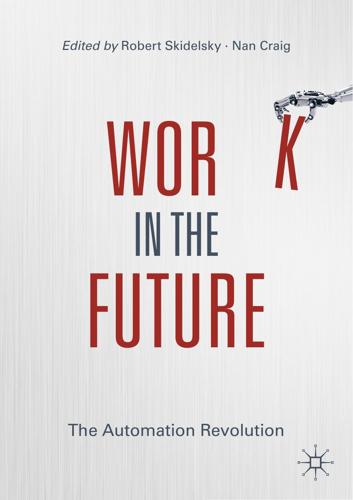
Work in the Future The Automation Revolution-Palgrave MacMillan (2019)
by
Robert Skidelsky Nan Craig
Published 15 Mar 2020
Historically, it’s important to remember that the labour theory of value was almost universally accepted by popular classes in the nineteenth century, particularly in America; there was this incredible outpouring of hatred towards corporate capitalists—“robber barons” as they called them at the time—when they first appeared; and this was followed by an explicit intellectual counteroffensive from the side of the robber barons themselves; starting in America with people like Andrew Carnegie. It took explicit aim at the idea that workers create wealth, or that one’s work should be one’s primary means of expression, self-realization, or the basis of one’s feelings of self-worth. This was startlingly effective. After all, if you said “wealth creator” in 1850, everyone would assume you were referring to workers; if you say “wealth creator” now, they’ll assume you mean bosses. This was accompanied by the idea that people should think of themselves as valuable according to what they consumed instead. The obvious problem here is: how do you validate labour in a situation like 166 D.
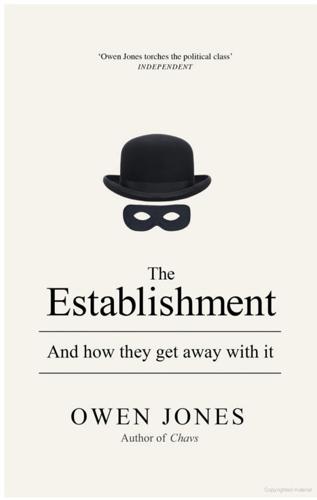
The Establishment: And How They Get Away With It
by
Owen Jones
Published 3 Sep 2014
It is reminiscent of the ‘night-watchman state’, a term coined by the nineteenth-century German socialist Ferdinand Lassalle to describe the vision of his own laissez-faire contemporaries: a state with the most limited of functions. Despite shades of moderation and radicalism, the British Establishment’s governing ideology is consistent. The state is a bad thing, and gets in the way of entrepreneurial flair. Free markets are responsible for growth and progress. Businesspeople are the real wealth creators. It is a sentiment echoed by elite politicians of all stripes. When Nick Clegg became leader of the Liberal Democrats in 2007, months before the financial crash, he pledged to ‘define a liberal alternative to the discredited politics of big government’. Elsewhere, he assailed ‘nationalised education, nationalised health, and nationalised welfare: run by inflexible, centralised monopolies’.
…
Support for the great privatization crusade may be received wisdom among Establishment politicians, journalists and think tanks – but it has never won the hearts and minds of the British people. Big business is more than happy to take from the vast wealth and resources of the state, but it is far more reluctant to give. The Establishment ideology that the state is somehow illegitimate, an obstacle to the entrepreneurial flair of the ‘wealth creators’, justifies not providing it with the revenue it needs to function. Even at a time of austerity shredding through services and livelihoods, large swathes of Britain’s wealthy elite have effectively ceased to pay their taxes. It is a practice that exposes just who the British state serves. s 6 Tycoons and Tax-Dodgers If modern British capitalism wanted a public ambassador, Steve Varley would be a pretty good bet.
…
‘A Savage and Pointless Attack on Middle England’ ran a headline in the Daily Telegraph, which was odd given the median British salary was £21,000, or over seven times lower than the threshold for the 50p tax. The Daily Mail damned a return to ‘the politics of envy’, while the Sun damned the tax as ‘an assault on wealth creators’. It is an argument also based on the assumption that those who make it into the wealthy elite have got there simply through skill and determination – so why should they be penalized for being gifted and for grafting? Some entrepreneurs are honest about how much they rely on other people, and on chance.
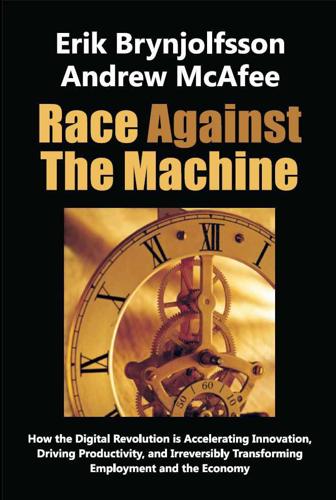
Race Against the Machine: How the Digital Revolution Is Accelerating Innovation, Driving Productivity, and Irreversibly Transforming Employment and the Economy
by
Erik Brynjolfsson
Published 23 Jan 2012
There are at least 19 specific steps we can take to these ends. Education 1. Invest in education. Start by simply paying teachers more so that more of the best and the brightest sign up for this profession, as they do in many other nations. American teachers make 40% less than the average college graduate. Teachers are some of America’s most important wealth creators. Increasing the quantity and quality of skilled labor provides a double win by boosting economic growth and reducing income inequality. 2. Hold teachers accountable for performance by, for example, eliminating tenure. This should be part of the bargain for higher pay. 3. Separate student instruction from testing and certification.

Walk Away
by
Douglas E. French
Published 1 Mar 2011
The authors of Untapped Riches: Never Pay Off Your Mortgage—and Other Surprising Secrets for Building Wealth, Susan and Anthony Cutaia with Robert Slater claimed in their 2007 book that the fixed-rate mortgage was the worst mortgage in history. The Cutaias claimed certain types of mortgages were wealth creators. Mortgages like Option ARMs, Cash Flow ARMS, and negative amortization loans were best because these loans were “smart debt” which freed up cash so borrowers could leverage their homes to create wealth. They also advocated interest-only loans. To their credit, the husband and wife team cautioned readers not to fritter away their cash on boats and vacations.
Conscious Capitalism, With a New Preface by the Authors: Liberating the Heroic Spirit of Business
by
John Mackey
,
Rajendra Sisodia
and
Bill George
Published 7 Jan 2014
As a committed capitalist, I worry a great deal to see how capitalism has gone off the rails the past quarter century and acquired such a bad name, much of it deserved. In this book, John Mackey and Raj Sisodia return capitalism to its roots. They make a compelling case for capitalism as the greatest wealth creator the world has ever known. In these pages, they call their version conscious capitalism. I consider it just capitalism, as it is the only authentic form of capitalism. Other forms of doing business, including “crony capitalism,” are simply inauthentic versions of the real thing. As we witnessed during the global economic meltdown of 2008 and the Great Recession that followed, these false versions of capitalism cannot be sustained and are doomed to fail over the long term.
…
Educator Candace Allen, wife of economics Nobel laureate Vernon Smith, writes movingly about the need for entrepreneurial heroes in society and the great impact they have on our lives: “Ultimately, the hero is the representative of the new—the founder of a new age, a new religion, a new city, the founder of a new way of life or a new way of protecting the village against harm; the founder of processes or products that make people in their communities and the world better off. What I will contend here is that in our modern world, the wealth creators—the entrepreneurs—actually travel the heroic path and are every bit as bold and daring as the heroes who fought dragons or overcame evil.”12 Why Capitalism Is Under Attack Despite enabling widespread prosperity, free-enterprise capitalism has earned little respect from intellectuals and almost no affection from the masses.
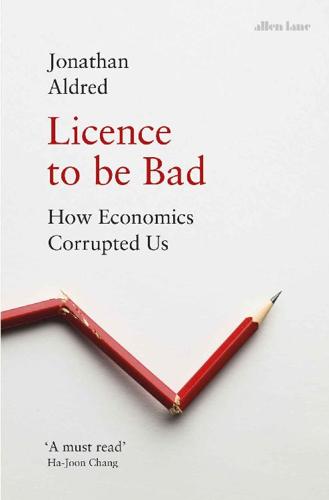
Licence to be Bad
by
Jonathan Aldred
Published 5 Jun 2019
While it may seem to have nothing to do with mainstream opinion in the twenty-first century, elements of this Paretian worldview persist today in the idea that there are some exceptionally talented people in the world who deserve to keep the overwhelming majority of the wealth they create. Trying to resist this tendency towards the concentration of wealth in the hands of a few supreme wealth creators, so the argument goes, is likely to be futile, and attempts to do so will usually be harmful to wider society. Another reason why inequality becomes barely worth talking about. In the modern version, the conclusion is essentially the same: rising inequality is natural and inevitable. But it is justified by an economic argument around globalization and new technology.
…
Although politicians can ignore this truth for a while, it suggests that widespread opposition to higher taxes on the rich is ultimately based on reasons beyond economics. When the top UK income tax rate was raised to 50 per cent in 2009 (until Osborne cut it to 45 per cent four years later) the musicals composer Andrew Lloyd Webber, one of Britain’s wealthiest people, responded bluntly: ‘the last thing we need is a Somali pirate-style raid on the few wealth creators who still dare to navigate Britain’s gale-force waters’.38 In the US Stephen Schwarzman, CEO of private equity firm Blackstone, likened proposals to remove a specialized tax exemption (from which he greatly benefited) to the German invasion of Poland.39 While we may scoff at these whines from the super-rich, most people unthinkingly accept the fundamental idea behind them: that income tax is a kind of theft, taking income which is rightfully owned by the person who earned it.
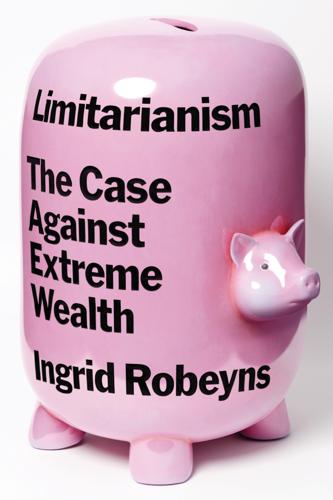
Limitarianism: The Case Against Extreme Wealth
by
Ingrid Robeyns
Published 16 Jan 2024
But it cannot justify the gulf we see today between childcare workers—who earn £14,000 to £24,000 in the UK, $18,500 to $38,000 in the US, and on average €29,000 in the Netherlands—and the CEOs who earn multiple millions a year. * * * Some reading this will object that many super-rich individuals are wealth creators—people who have made their millions through their own ingenuity, and who have generated many jobs for others along the way. Certainly, along with inheritances and earnings from labor, money generated by entrepreneurship—either as profits from one’s own business or as a return on stock-market investments—is a significant source of extreme wealth.
…
K. 5, 11, 139 Russia 9–10, 24, 27, 39–40, 50–52, 63, 76, 78–9, 96, 104, 211 Rutte, Mark 85 Sachs, Jeffrey 153–4 Sackler family 52–4 Saez, Emmanuel 66, 69 safety regulations 57 Salk, Jonas 137 Sanders, Bernie xx–xxi Satz, Debra 218–19 savings 4, 10, 11–12, 13, 25, 37, 41, 61, 62, 70–71, 82, 115, 121–2, 151, 152, 171, 189, 226 Schimmelpennick, Sander 190 Scott, MacKenzie 136 sea levels 99 Second World War (1939–45) 3, 27, 33–4, 151 Seko, Mobutu Sese 48–9 “self-made” super-rich 5–6, 121 Sen, Amartya 21 shared spaces 108–9 shareholders 6–7, 55, 56, 57, 59–60, 85, 96–7, 104, 135, 135–6, 145, 159, 210, 220–21, 223 Sharman, Jason 49 Shell 6–7, 86, 96, 102, 128 Sherman, Rachel 199–200 silver-bullet strategies 155, 214–15 Simon, Herbert A. 138 ’S Jongers, Tim 140–41 Skidelsky, Edward 201 Skidelsky, Robert 201 Skocpol, Theda 89–90 slavery 20, 21, 28, 43–4, 45–7, 223, 224 smallpox xv Smalls, Chris 59–60 Smith, Adam: The Wealth of Nations 219 Snyder, Timothy 76 SOAS 46 social capital 138 social comparison 197 social contract 31, 32, 68, 119, 120–21, 124, 137, 139, 167, 169, 176, 191–2, 220, 221 social housing 37, 209–210, 217–18 socialism 21, 44, 55, 208, 211 social mobility 33–4, 39, 123, 139–42, 205 social-security 5, 14, 65, 170 social unrest/“threat of the pitchforks” xxi, 77, 176, 187–92 Soros, George xxi–xxii space tourism xi, xii, 6, 60, 101, 103, 114, 147–8, 154, 181 SpaceX xi special obligations 185 stagflation 34 Stanford University 113, 175, 218–9, 231 state capture 76 Stichting Reclame Rood 102 structural action/change xv, xvi, 180–1, 212, 218 stylized facts 26 subsidies 28, 35, 37, 83, 102–3, 159, 176, 211 Süddeutsche Zeitung 63–4 Sullivan, Dylan 22–23, 136 Sunak, Rishi 40 Sunday Times xi super-rich class system and 29–30, 32 climate change and see climate change corporate ladder and 6–7 corrosive effect of extreme wealth on xiii, 193–9 definition of 4–10 democracy and see democracy dirty money and see dirty money distribution of worldwide 24–5 diversity of 4–10 economic growth and 189–90 future of 203–29 good life and 201–2 government, distrust of 172–5 implementing limitarianism in their own lives xxii inheritance and see inheritance insecurity that characterizes affluent societies and 199–200 limitarianism benefits to 187–202 moral limits of inequality, averse to debating xxiv–xxv neoliberalism and see neoliberalism philanthropy and see philanthropy riches line and see riches line “self-made” 5–7, 121 social unrest/“threat of the pitchforks” and 187–92 tax and see tax wealth addiction and 198–9 Switzerland 24–5, 63, 224 taboos 30–31, 32 tax avoidance 60–68, 146, 166, 167, 168, 175, 180, 203, 221, 221–2, 223 breaks 37, 61 climate change and 102, 110–16 confiscatory tax 114, 122 corporation tax 39–40, 60, 65–7, 90, 225 cuts 33, 35, 38, 39–40, 90, 168 deductions xxiv 28, 65–6, 70, 175–6 dividends and 85–6, 225 dodging 60–80 “double” taxation 124 estate tax 8, 90, 121 evasion 37, 51–2, 60–61, 63, 64, 67, 68, 116, 146, 167, 203, 221, 221–2, 223z fraud xiv, 51–2, 64–5, 221 fuel tax 103 government and 119–22 havens 42, 62–8, 121–2, 214, 222, 222–3 highest tax rate xv, xvii, 15–16, 37, 39–40, 69, 95, 160, 161–2, 214, 221 income tax 33, 37, 39–40, 61, 70, 77, 160–61, 186 inheritance tax 8, 68, 82, 121–5, 191, 226–7 international tax differences 166–67, 222 international tax organization 222 jaloesiebelasting (envy tax) xxi labor and capital, income from and 60, 61–62, 69–70, 225 limitarian society and xv lobbying and 69, 85–86 neoliberalism and 33, 34 100 per cent xvi, xvi, 15–16, 22, 95, 160, 214–15 optimal top marginal taxation rate 160 philanthropy and 166–9, 172, 173–4, 175–6, 180–81 profit shifting and 65–7 progressive tax rates xiv, xvii, xx–xxi, 34, 61, 145, 146, 221 property and 70, 120 racial inequality and 28 Reagan tax cuts 33 taxmenow 6, 65 trickle-down effect and 38–40 wealth-defense industry and 67–71, 82, 121, 124, 175, 180, 197 wealth taxes xviii, xx–xxi, 160, 222, 226 technological innovation 30–31, 32, 41, 108, 113–14, 137–8, 144, 158, 159, 177–78, 207 10 percent rule 185–6 Tesla xi Thatcher, Margaret 33, 208 Thiel, Peter 77 think tanks 40, 89, 90, 94–5 “too rich” xii–xiii, xviii Total Energies 96 transnational capitalist class 92–3 Trevelyan family 46–7 trickle-down effect 38–40, 189 Trump, Donald 52, 67, 68, 79, 81, 87–8, 92 Trump, Fred 67 Truss, Liz 40 tuition fees 14 Tuvalu 106 Twitter xi, xii, 5–6 ultra-high-net-worth individuals 24–5 unconditional basic income 138, 150, 174 undeserved wealth 117, 118–43, 184 inheritance 121–2 labor/wage inequalities 126–33 markets/property as social institutions 118–22 social mobility and 140–41 wealth creators/entrepreneurs and investors 133–9 unemployment 14, 34, 39, 65, 146, 150, 158, 170, 200 unequal exchange 23–4 Unilever 86 Union Carbide 55–7 unions, labor/trade 23, 30, 33, 58, 59–60, 83, 135, 160, 180, 220 United Nations (UN) 42, 72 Food Systems Pre-Summit (2021) 154 human development indicators 171 Sustainable Development Solutions Network 153 World Food Program 99 United Russia 50 Universal Declaration of Human Rights 72 universal draft 30 universities 6, 14, 33, 36, 46, 47, 76, 84, 90, 114–5, 165, 166, 169–70, 180, 181, 195, 223, 227 University of Glasgow 46 University of the West Indies 46 unmet needs 144–63, 182 collective-action problems and 159 Covid–19 and 144–146 declining marginal value of money and 146–7 direct cash transfers and 152 entrepreneurial goals and 159 extreme poverty and 149–150 incentives objection 160–3 money, possibility of addressing with 148–50 non-financial incentives 162–3 poverty in rich economies 155–8 USA American Dream 156, 205, 217 asylum seekers in 79 basic income in 174 Black Lives Matter movement 191–2 business practices, harmful 52–7 CEO pay 7, 126, 127, 133 class system 30–32 climate change and 104–5, 108 Covid–19 and wealth in 145 estate tax 8, 90, 121 health deficits in 157 national parks 211 national public service in 218–9 oligarchy 73 philanthropy and 53, 164–8, 192 political donors and 80–84 political polarization in 88–91 poverty in 20, 26–7, 37, 155 presidential election (2020) xxi, xxii, 52, 88–9 race and 45–7, 174 taxes in 8, 33, 62, 64, 68, 69, 90, 121 tuition fees 14 wealth distribution in 24–8, 204–6 utilitarianism 146, 184 Utrecht 1, 15 Utrecht University 11 vaccines 36, 137, 145 Van der Veer, Peter 128, 160 variola virus xv viruses xv, 146 VVD 85 wages Amazon and 59 burden of job and 131–3 equality and 125–6, 131, 132, 223 garment industry 57, 58 globalization and 32 Global South and 23 labor market discrimination and 125 living wage 12, 143, 160, 223 low wages of working poor 156, 223 maximum wage 224 middle classes and 189 minimum wage xv, 160, 174, 176, 211, 224 ratio 224–5 slavery and 45 stagnation of 39 tax and 67 underestimation of 205 unions and 180 Wales, Prince William, Prince of 7 Wall Street 198–9 Walmart 58 Warren, Elizabeth xxi, 38 Washington Center for Equitable Growth 39 wealth addiction 16, 195, 198–9 climate change and see climate change concentration of xii, xiii–xiv, xvi, xviii, xxv, 4, 16, 24–5, 35, 36, 42, 65, 74, 89, 94–5, 100, 109–10, 116, 117, 118, 125, 139, 207, 221, 225, 231 confiscation of xiv, xix, 47, 191, 222 corrosive effect of xiii, 193–9 creators 133–9 see also entrepreneurs defense industry 67–71, 82, 121, 124, 175, 180, 196 democracy and see democracy dirty money and 41–71 distribution of xiii, xv, xxv, 2, 3, 24–9, 32, 35, 97, 100, 141, 169, 172, 183, 189, 204–6, 225 equality/inequality and see equality extreme xx–xxi, xxv, xxvi 2, 3, 4, 5, 16, 17–40, 41, 68, 71, 75, 89, 97, 99–100, 106, 109, 115–7, 121, 125, 133, 139, 148, 161, 182, 185, 188, 192, 194–5, 196, 199, 200, 203, 207, 215, 221 inheritance and see inheritance limiting see limitarianism philanthropy and see philanthropy poverty and se poverty rich lists xi–xii, 2, 133–4 super-rich and see super-rich tax and see tax undeserved 118–43, 184 unmet needs and see unmet needs welfare fraud 65 state 14, 65, 83, 143, 156, 170–71, 190, 201, 213 well-being big government and 169, 172 Covid–19 and 144–5 poverty and 140, 151, 152, 154–5 property rights and 119 super-rich people and 6, 16, 194, 197–8 tax and 146 utilitarianism and 184 well-being economy 213–14 Wellbeing Economy Alliance 213–14 Wenar, Leif: Blood Oil 48 White, Stuart 226 Wiardi Beckman Foundation 141 wildfires 99, 102, 105 Winfrey, Oprah 5, 6, 139 “winner takes all” market 129, 134–5 win-win narrative 18–21, 67 Wirsching, Andreas 44 working class 29, 31–32, 35, 83, 83–4, 164, 217–18 World Bank 18, 21 World Bank Economic Review 21 World Economic Forum (WEF) xxi, 42, 91 Annual Meeting, Davos xxi–xxiii, 17, 91–3, 103, 188 World Health Organization (WHO) xv Zaïre 48–9 Zara 136 Zoomkawala, Huzaifa 22–3, 136 Zucman, Gabriel 62–3, 66, 69 Zwarthoed, Danielle 198 About the Author Ingrid Robeyns currently holds the chair in ethics of institutions at Utrecht University.
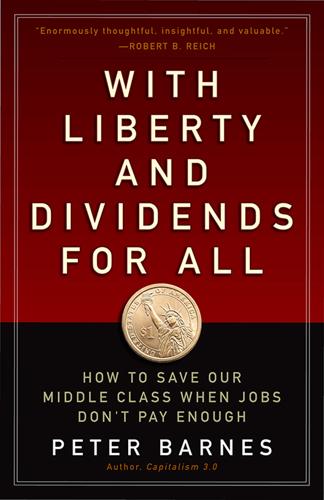
With Liberty and Dividends for All: How to Save Our Middle Class When Jobs Don't Pay Enough
by
Peter Barnes
Published 31 Jul 2014
To correct these persistent problems, we recommended sweeping management changes—not just new people dropped into old slots but new institutions designed to manage co-owned wealth responsibly.2 The big, rarely asked question about our current economy is who gets the benefits of co-owned wealth? No one disputes that private wealth creators are entitled to the wealth they create, but who is entitled to the wealth we share is an entirely different question. My contention is that the rich are rich not so much because they create wealth but because they capture a much larger share of co-owned wealth than they’re entitled to. Another way to say this is that the rich are as rich as they are—and the rest of us are poorer than we should be—because extracted rent far exceeds recycled rent.
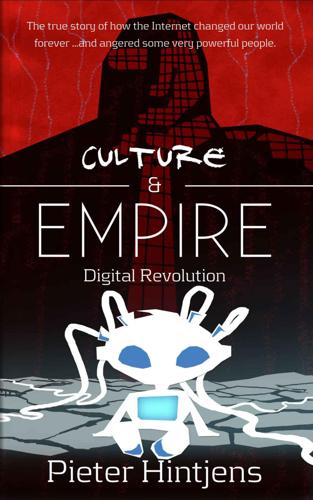
Culture & Empire: Digital Revolution
by
Pieter Hintjens
Published 11 Mar 2013
If the proof of the pudding is in the eating, the right-wing economists are chewing on something cold and rubbery. The blind worship of strong private property rights has allowed many abuses. Broadly, it is an excuse for the rich and powerful to steal public assets and then claim they are the "wealth creators." It has been the plank for many a coup, invasion, and even genocide on grounds to stop "socialist" regimes and their "mad" policies. It blessed the "greed is good" mantra that eviscerated business ethics in the last decades. It protects the patent system from scrutiny and gives it space to grow.
…
In fact, an efficient free market absolutely depends on public assets. If you privatize the playing field, the owner will tilt it in his favor. All law is an answer to a set of problems. Stronger private property law is a brilliant, rational answer to the wrong problem: how to encourage individual investment and how to allow the wealth creators to escape the shackles of a parasitic society. The actual problem is: how to protect real investments from cheats (both the skinny beggars and the fat bandits). As I showed in the story of sub-Saharan Africa, endemic poverty comes from distant, fragmented, and unfair markets. No stronger property laws will open more ports, move Africa closer to Europe, or break the grip of the criminal elites and their foreign allies.
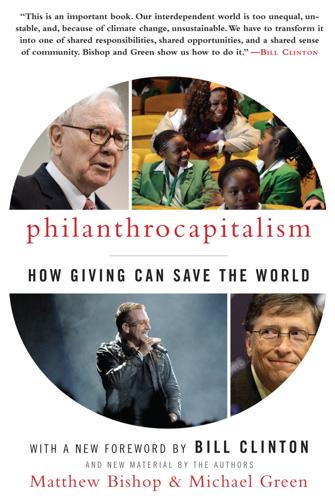
Philanthrocapitalism
by
Matthew Bishop
,
Michael Green
and
Bill Clinton
Published 29 Sep 2008
Top of the agenda was how they could encourage more giving by Preface others—their fellow tycoons and the general public. (Making future meetings public, rather than trying to keep them secret, would surely help inspire others to give.) This book is about the renaissance of giving and philanthropy, led by the world’s most successful wealth creators. Philanthrocapitalism describes how they give, by applying business techniques and ways of thinking to their philanthropy. It also describes the growing recognition by the leaders of capitalism that giving back much of their fortune to improve society is as much a part of the system as making the money in the first place.
…
No one wants to be remembered as the family member who squandered centuries of hard-earned cash or sold the family seat. This is not true of every inheritor, of course; for example, British supermarket heir David Sainsbury has long been one of his country’s leading philanthropists and has pledged to give away £1 billion during his lifetime. But generally, an original wealth creator feels less constrained than an inheritor: he made the money, and so can do with it as he pleases. Indeed, having no family may actually be associated with higher levels of philanthropy. Many of history’s greatest philanthropists, like Tudor-era donor William Lambe and Sir Thomas Guy in the eighteenth century, were childless.
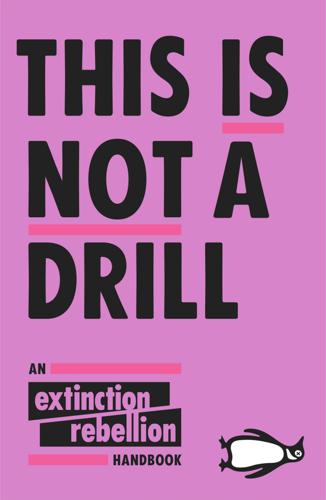
This Is Not a Drill: An Extinction Rebellion Handbook
by
Extinction Rebellion
Published 12 Jun 2019
I prefer to call it, simply, democracy – real democracy. This is doable. Act, don’t ask. Learn by doing. Get on with it. Time is short. AFTERWORD ROWAN WILLIAMS It just might work. It is just possible that sustained pressure will bring about a modest change of heart among decision-makers and ‘wealth creators’ and some serious adjustments might be made. I can hear the sound of people not holding their breath. It isn’t only inertia that we have to contend with, unfortunately. It’s vested interests, passionate commitment to the goods and privileges we enjoy because of the way in which we – the collectively wealthy of the world – have chosen to use the material that lies around us.
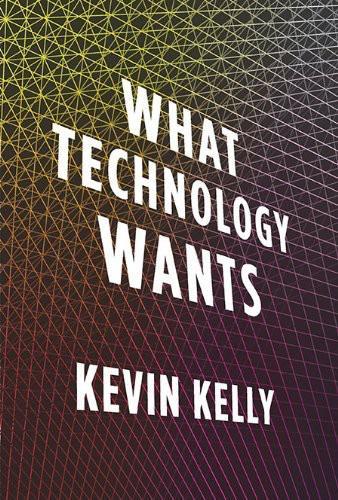
What Technology Wants
by
Kevin Kelly
Published 14 Jul 2010
The city as a whole is a wonderful technological invention that concentrates the flow of energy and minds into computer chip-like density. In a relatively small footprint, a city not only provides living quarters and occupations in a minimum of space, but it also generates a maximum of ideas and inventions. Stewart Brand notes in the “City Planet” chapter of his book Whole Earth Discipline, “Cities are wealth creators; they have always been.” He quotes urban theorist Richard Florida, who claims that forty of the largest megacities in the world, home to 18 percent of the world’s population, “produce two-thirds of global economic output and nearly 9 in 10 new patented innovations.” A Canadian demographer calculated that “80 to 90 percent of GNP growth occurs in cities.”
…
New York: HarperCollins, p. 34. 83 slum at its peak in the 1880s: Robert Neuwirth. (2006) Shadow Cities. New York: Routledge. 83 “this serves all the purposes of the family”: Ibid., p. 177. 83 “bona fide legal title to their land”: Ibid., p. 198. 83 “half a dozen tents or shanties”: Ibid., p. 197. 84 “Cities are wealth creators”: Stewart Brand. (2009) Whole Earth Discipline. New York: Viking, p. 25. 84 “nearly 9 in 10 new patented innovations”: Ibid., p. 32. 84 “GNP growth occurs in cities”: Ibid., p. 31. 84 “in the city at least six years”: Mike Davis. (2006) Planet of Slums. London: Verso, p. 36. 85 but 94 percent of their kids were literate: Stewart Brand. (2009) Whole Earth Discipline.
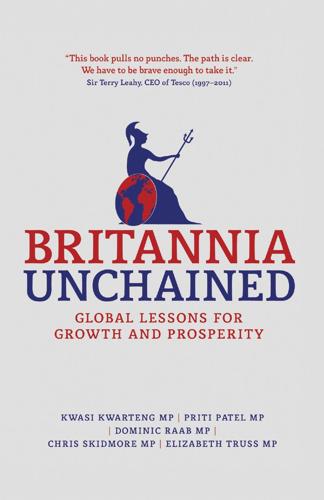
Britannia Unchained: Global Lessons for Growth and Prosperity
by
Kwasi Kwarteng
,
Priti Patel
,
Dominic Raab
,
Chris Skidmore
and
Elizabeth Truss
Published 12 Sep 2012
In these countries individual initiative and free enterprise continued to drive progress. Millions of people are 4 Britannia Unchained being pulled out of poverty across the world by the simple processes of capitalism. Britannia Unchained is unembarrassed about its support for business, the profit motive and the individual drive of the wealth creator. The term ‘globalisation’ is a cliché. However, it is certain that, for the first time in centuries, the world economy is being driven by what happens outside Europe and North America. At the same time, many parts of the old world are fighting back. Germany has embarked on a programme of welfare reform.
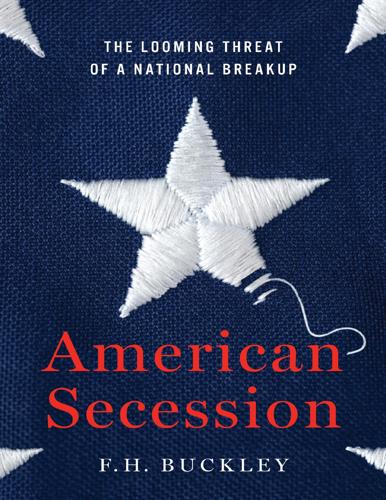
American Secession: The Looming Threat of a National Breakup
by
F. H. Buckley
Published 14 Jan 2020
Concern about minoritarian misbehavior, the tyranny of a minority or of narrow interest groups, has been a constant in American politics, from George Mason’s contempt for stock-jobbers, to the fulminations of nineteenth-century populists such as Andrew Jackson and William Jennings Bryan. In the next century, William Z. Ripley, an economist (and racist), wrote of an economic struggle between wealth creators on Main Street and a smaller group of parasitical Wall Street speculators.16 We saw the same clash again in the 2008–9 bank bailout, which was said to have rescued our financial system but led to a jobless economic recovery. Those who defend the bailout tell us it saved the U.S. economy and prevented the Great Recession from turning into another Great Depression.
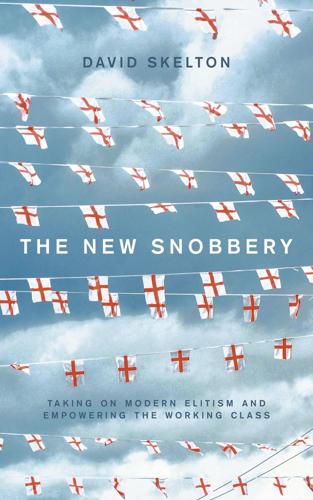
The New Snobbery
by
David Skelton
Published 28 Jun 2021
Hence the snobbery of the successful towards the views of the less successful is seen as being justified by merit and talent. This has coincided with a two-tier economy created by the decline of skilled manufacturing and the growth of graduate jobs. Deindustrialisation created a social and economic blight that impacted several generations and is still being felt today. ‘Wealth creators’ have become lionised; professional careers have been defined as the only reasonable option; and superstar CEOs have grown used to seeing their views venerated in a cult-like way. At the other end of the social scale, many jobs have been robbed of dignity and respect and workers have found their voices ignored.
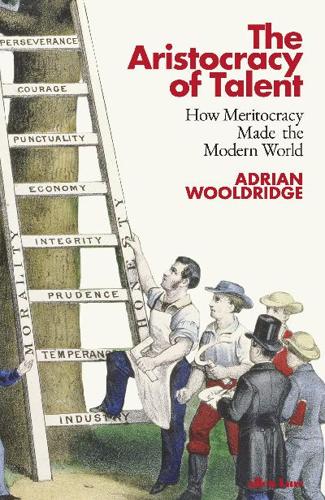
The Aristocracy of Talent: How Meritocracy Made the Modern World
by
Adrian Wooldridge
Published 2 Jun 2021
Plato believed that any objective study of the human species revealed that human beings are naturally divided into three types on the basis of their natural abilities: men of gold, men of bronze and men of silver. The men of gold are the rightful guardians of the Republic: the people who, thanks to a combination of natural ability and careful training, have the ability to think more deeply, see more clearly and, as a result, rule more justly than anyone else. The men of silver are the wealth creators, the impresarios of the productive process. The men of bronze are the horny-handed sons of toil who take care of the necessities of life. But men of gold are not necessarily born to parents of gold, just as men of bronze are not necessarily born to parents of bronze: hence the explosive idea of equality of opportunity.
…
The artificial noble shrinks into a dwarf before the noble of nature …’9 William Cobbett (1763–1835), a labourer’s son who became the most influential journalist of his generation, was equally withering about ‘the thing’, as he dubbed the British establishment. The establishment existed to support ‘tax eaters’ at the expense of wealth-creators, and office-holders at the expense of ordinary people: it was thus ‘all-corrupting and all-degrading’. The Corn Laws kept the price of food high in order to make life easy for aristocrats. The system of patronage stuffed the administration with bloodsuckers. Cobbett drew up plans to write a play with the memorable title of ‘Bastards in High Places’ but unfortunately died before he could put pen to paper.
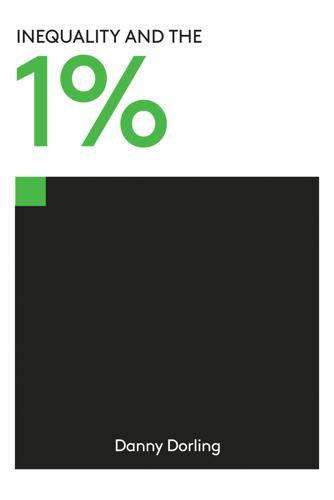
Inequality and the 1%
by
Danny Dorling
Published 6 Oct 2014
Source: Social Mobility and Child Poverty Commission, 2013 Figure 4.3 Households with children in private renting, percentage in England 1984–2012 The most vulnerable families in Britain – those with five or more vulnerabilities – stand to lose £3,000 a year in income by 2015, although subsequent events mean it will be more in real terms.67 It is also projected that, because of the cuts being driven by the interests of the 1 per cent, there will be many more families falling into the vulnerable group in the near future. Some 100,000 more workless families will be created as the ‘wealth creators’ fail to be ‘job creators’.68 If you are trying to imagine how the proportion of children living in homes owned by a landlord can rise even further, consider this trend. Note: The most vulnerable families score five or more vulnerabilities. Source: Howard Reed, 2012 Figure 4.4 Tax and Benefit changes by vulnerability in the UK, impact, 2010 to 2015 Just as key members of the richest 1 per cent, when in power, work so hard to cut benefits for the poorest groups, their supporters also work hard to influence public opinion by suggesting that these are benefits we simply cannot afford.
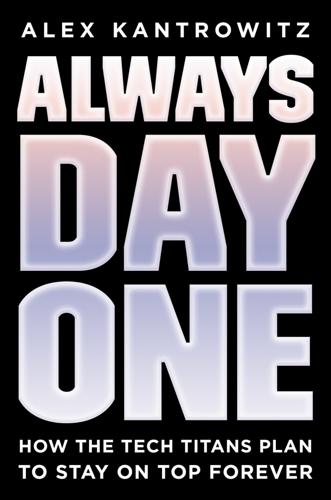
Always Day One: How the Tech Titans Plan to Stay on Top Forever
by
Alex Kantrowitz
Published 6 Apr 2020
And if we were going to study leadership, management, and the state of work, we needed to begin there. In retrospect, it wasn’t a bad idea. It’s easy to forget how young our modern workplace is. Less than one hundred years ago, the factory drove our economy. It was our biggest employer and most important wealth creator. At the time, managing was not an art. It was a task carried out through threats and fear. Show up late to a shift and you’d get fired. Lag behind and you’d get fired. Talk fresh to a manager and, well, you’d get fired. Workers were hired for their labor, not their ideas. So companies could replace them overnight and hardly tell the difference.
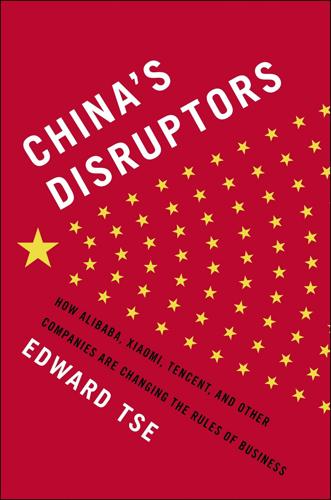
China's Disruptors: How Alibaba, Xiaomi, Tencent, and Other Companies Are Changing the Rules of Business
by
Edward Tse
Published 13 Jul 2015
Unsurprisingly, with examples like this before them, most entrepreneurs avoid any explicit involvement in politics. Liu Chuanzhi, the honorary chairman and former CEO of Lenovo, and another prominent member of the CEF, has long maintained a public stance of “no politics.” But like Victor Wang, he also suggests that China needs to support and protect the country’s main wealth creators, which in turn will require more than just economic changes. Speaking at a China Entrepreneurs Forum meeting in 2013, he told CNBC, “My view is that the Chinese government should adopt a more systematic and comprehensive approach when it comes to reform. For example, how to establish a better rule of law in this country so as to increase the creditworthiness of the government, so that the public will have more confidence and ensure a culture of mutual trust and honesty can be established. . . .
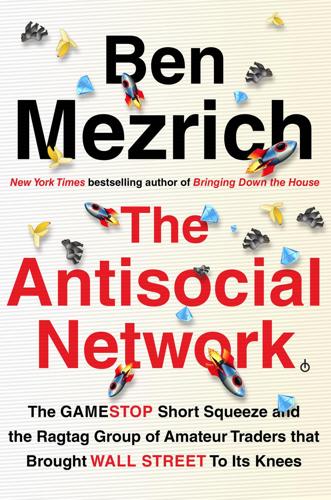
The Antisocial Network: The GameStop Short Squeeze and the Ragtag Group of Amateur Traders That Brought Wall Street to Its Knees
by
Ben Mezrich
Published 6 Sep 2021
“We dreamed of making investing more accessible, especially for people without a lot of money.” Vlad’s words throbbed with the passion of a BELIEVER, and it didn’t matter whether his sermon was reaching just the fifty-odd lawmakers who were gathered at the mount, or the millions upon millions who were watching in their homes. “The stock market is a powerful wealth creator,” he continued, “but almost half of US households—” And when the first interruption came, from the chair herself, it seemed such a surprise that Vlad’s stunned look was obvious to anyone who was watching. “Mr. Tenev. I would like you to use your limited time to talk directly to what happened January 28, and your involvement in it.”
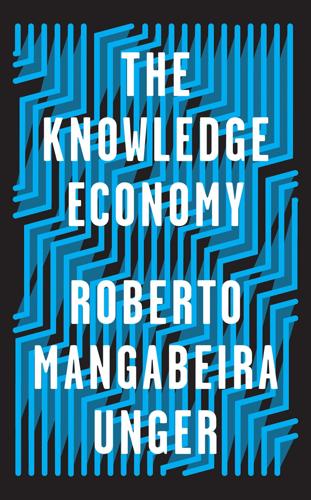
The Knowledge Economy
by
Roberto Mangabeira Unger
Published 19 Mar 2019
The sixth idea is that there exists an especially potent and promising subset of the circumstances represented by the fifth idea: this subset breaches the constraints on both supply and demand by broadening access to the most advanced practice of production. On the supply side, such initiatives increase the number of those who can share in the work of the most productive parts of the economy. On the demand side, they put people in a position to claim, as wealth creators, not simply as beneficiaries of retrospective and compensatory redistribution, a share in the wealth that they have helped produce. If this most advanced practice of production is the knowledge economy, the potential for the expansion of both supply and demand is especially great. The knowledge economy offers admission to a form of productive activity that tends to make innovation perpetual and that promises to relax or reverse the rule of diminishing marginal returns to an increasing input in the process of production.
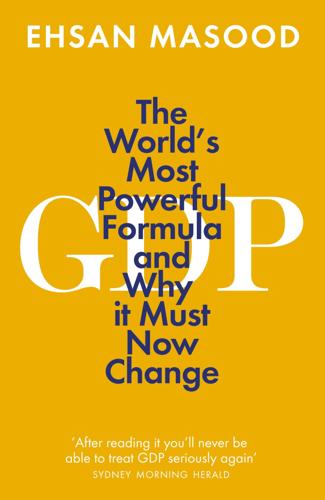
GDP: The World’s Most Powerful Formula and Why It Must Now Change
by
Ehsan Masood
Published 4 Mar 2021
Nearly a decade earlier Gustav Papanek had calculated that some twenty-four families controlled half of all industrial assets.24 Some years later the economist Lawrence White expanded the list to forty-three family groups.25 But few argued with Haq’s basic point: that countries do not become more prosperous if government policies focus on stopping all but a small number of wealth creators from becoming ever richer. Mahbub ul Haq was not alone in discovering firsthand the damage that could be done by managing an economy through a narrow focus on GDP. Five thousand miles west of Karachi, another Cambridge alumnus had come to the same conclusion. This was Dudley Seers, inspirational statistician, founder of the Institute of Development Studies based at the University of Sussex, and an adviser to the then British Labour government of Harold Wilson and especially Wilson’s minister for overseas development, the formidable Barbara Castle.
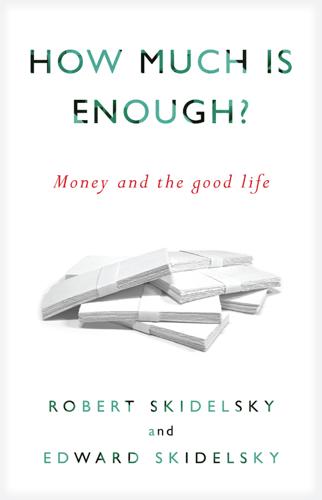
How Much Is Enough?: Money and the Good Life
by
Robert Skidelsky
and
Edward Skidelsky
Published 18 Jun 2012
The way to faster growth lay not through planning, but freeing up markets from red tape, improving incentives through lighter taxes, reducing the power of trade unions, and extending markets through privatization and deregulation. These steps in combination would make the allocation of capital more efficient. The Thatcher–Reagan dispensation also viewed the growth of income inequality as acceptable insofar as it improved the incentives of the “wealth creators”: there would be a “trickle down” from rich to poor. This set of ideas became what Adair Turner calls the dominant “instrumental conventional wisdom” across the political world over the following thirty years.2 In retrospect, it was the shift to a market-based philosophy of growth rather than to a growth-based philosophy as such that inflamed the insatiability of wants we identified in Chapter 1.
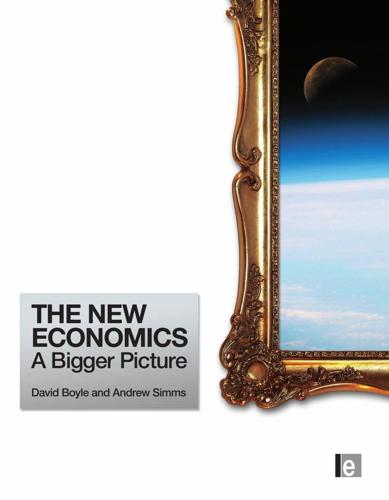
The New Economics: A Bigger Picture
by
David Boyle
and
Andrew Simms
Published 14 Jun 2009
The economist Paul Krugman, in his book Peddling Prosperity, estimates that as much as 70 per cent of the extraordinary economic growth of the 1980s in the USA was delivered to the richest 1 per cent of the population.6 There were 13 billionaires in the US in 1982, and by 1999 there were 268 – and that was before the dot.com boom.7 We have already seen how Bill Clinton won the 1992 presidential election with the help of the slogan ‘Trickle down doesn’t work’. Despite this definitive statement, most economic policy is based on this flawed old economic dictum that helping the wealth-creators will automatically help everybody else. If that wealth is not productive, or if the bargain driven with the producers is manifestly unfair, then the wealth will not trickle. Even so, the complete failure of so-called ‘trickle down economics’ seems to require some other explanations. Why, despite the apparent success of recent decades, has that not benefited the poorest?
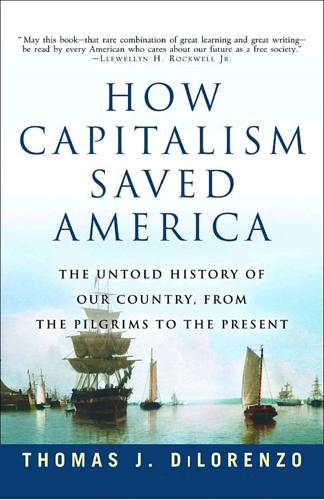
How Capitalism Saved America: The Untold History of Our Country, From the Pilgrims to the Present
by
Thomas J. Dilorenzo
Published 9 Aug 2004
The authors use economic theory and evidence to show that the Microsoft Corporation has always been a boon for competitiveness, contrary to the claims by the company’s sour-grapes competitors and résumé-building government antitrust attorneys. Locke, Edwin A. The Prime Movers: Traits of the Great Wealth Creators. New York: AMACOM, 2000. Locke catalogues the personal and business-practice traits of those who have been pioneers of industry and wealth creation in America. Manne, Henry G. The Modern Corporation and Social Responsibility. Washington, D.C.: American Enterprise Institute, 1972. One of the founders of the “law and economics” movement explains how businesses can best be “socially responsible” by steadfastly concentrating on profit maximization.
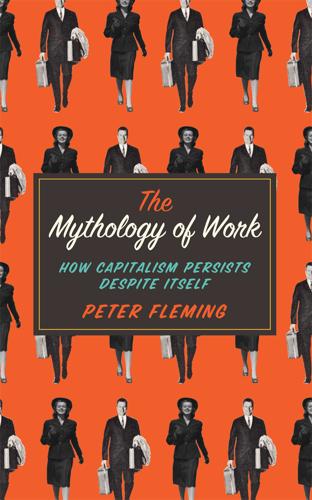
Mythology of Work: How Capitalism Persists Despite Itself
by
Peter Fleming
Published 14 Jun 2015
This is because the power gulf between the winners and the massively expanding class of losers has become so obvious and thus risks inciting insurrection. For instance, neoliberal society requires a very intrusive, micro-managing and punitive state apparatus which is expensive to run. This enables it to protect and disconnect a highly concentrated ruling class from the majority, who are the real wealth creators in capitalist society. We also see this pattern unfolding in the workplace. As soon as it arrives in any organization, managerialism’s first tendency is to swiftly expand its own ranks and replicate itself over and over again. In his extremely insightful study Fat and Mean (1996), Gordon dispels the myth that the neoliberal enterprise is lean and mean.
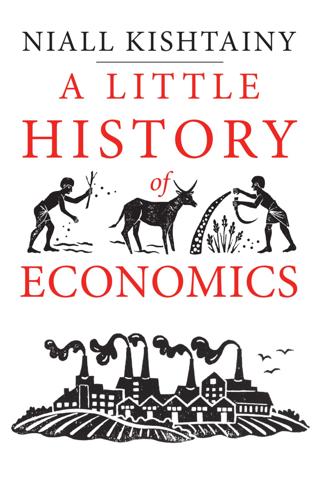
A Little History of Economics
by
Niall Kishtainy
Published 15 Jan 2017
Thorstein Veblen had seen Vanderbilt and his type as throwbacks to ancient societies of violent barbarians, ‘robber barons’ whose aggression made them rich but didn’t benefit society as a whole. But Schumpeter said that it was because they’d channelled their excess energy into industry instead of battle that they’d become society’s wealth creators. It’s entrepreneurs who, through daring and determination, make the innovations necessary for economic advancement and so help raise living standards over the long run, thought Schumpeter. They create new products using inventions (light bulbs that make use of the new discovery of electricity), or use new technologies to produce goods more easily (cheaper coal as a result of mechanical digging machines).
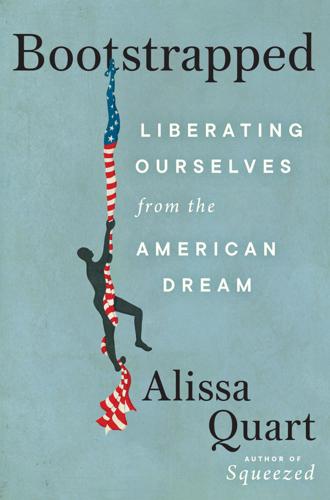
Bootstrapped: Liberating Ourselves From the American Dream
by
Alissa Quart
Published 14 Mar 2023
Also, according to the Patriotic Millionaires and their ilk, adequate estate taxes need to be implemented. When Collins first started making this case, multimillionaires and billionaires asked him, “‘Why do I have to pay this tax?’ They said, ‘I didn’t get any government help.’ They said, ‘Why are you punishing successful people? Why are you burdening the wealth creators with taxes?’” After Trump was elected, less than 0.1 percent of estates in the United States pay the tax: the limit for what estates were taxed at increased from $5.49 million per person in 2017 to $11.18 million in 2018, so only 1,900 estates are now taxed under federal tax law. The fact that even large estates are not taxed means that dollars do not flow to those who need them.
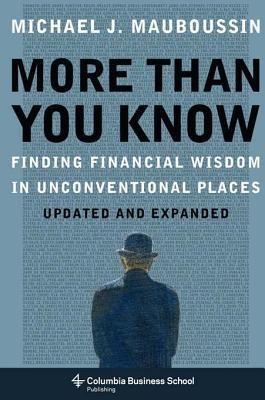
More Than You Know: Finding Financial Wisdom in Unconventional Places (Updated and Expanded)
by
Michael J. Mauboussin
Published 1 Jan 2006
Given the winner-take-most characteristics of many growth markets, there’s little reason to anticipate a more normal wealth-creation distribution in the future. In addition, the data show that the distribution of economic return on investment is wider in corporate America today than it was in the past.12 So the spoils awaiting the wealth creators, given their outsized returns, are greater than ever before. As in the St. Petersburg game, the majority of the payoffs from future deals are likely to be modest, but some will be huge. What’s the expected value? What should you be willing to pay to play? Integrating the Outliers The St.
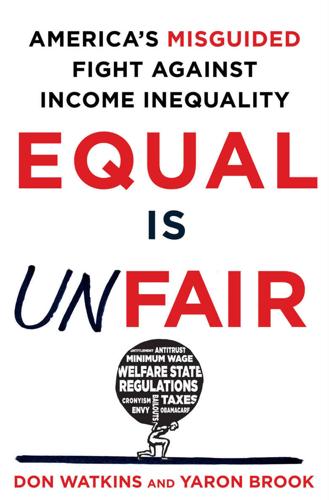
Equal Is Unfair: America's Misguided Fight Against Income Inequality
by
Don Watkins
and
Yaron Brook
Published 28 Mar 2016
Thinkers, of every level of ability, with the most credit going to the men and women of extraordinary ability. One of the most disturbing features of the debate over inequality is the almost deafening silence on the issue of human ability. More often than not, those who condemn inequality don’t discuss ability. And when they do, it is usually to accuse the greatest wealth creators of being greedy exploiters. But the men and women of extraordinary ability aren’t exploiters—they are the great benefactors of anyone who is willing to produce wealth. The Harmony of Interests among Producers When someone pursues unearned wealth, he can do so only at the expense of other people’s interests.
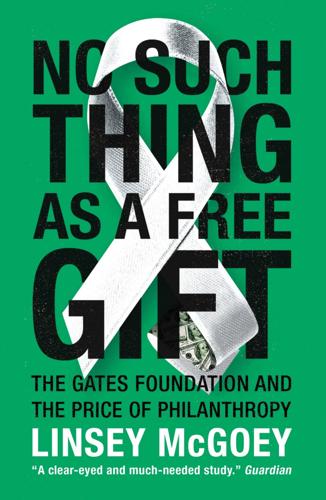
No Such Thing as a Free Gift: The Gates Foundation and the Price of Philanthropy
by
Linsey McGoey
Published 14 Apr 2015
In 2012, a millionaire entrepreneur and tech investor named Nick Hanauer – he made a windfall as an early Amazon investor – gave a TED presentation that expressed a starkly different view from Fries. His TED talk called for more progressive tax measures. He also lambasted the notion that entrepreneurs are society’s primary ‘wealth creators’. In his words, ‘Anyone who’s ever run a business knows that hiring more people is a capitalist’s course of last resort, something we do only when increasing customer demand requires it. In this sense, calling ourselves job creators isn’t just inaccurate, it’s disingenuous’. TED, which operates with the tagline ‘ideas worth spreading’, refused to air the video of his talk online.
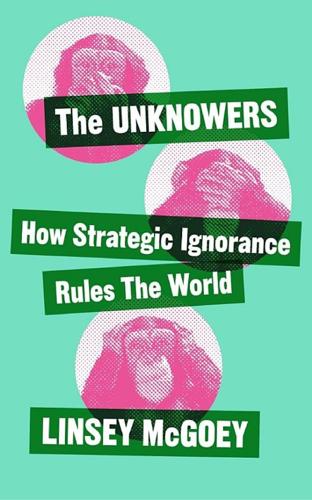
The Unknowers: How Strategic Ignorance Rules the World
by
Linsey McGoey
Published 14 Sep 2019
That trick is the merchant class’s ability to create an erroneous impression of shared public interest. Here’s where the story really gets interesting, because there’s a deep irony – even something of a two-century-long academic hoax – at the heart of Smith’s romanticized legacy. The irony is that so-called ‘wealth-creators’ are still getting away with the exact trick that Smith first warned governments to watch out for. To understand this trick, it’s helpful to understand the way that Smith categorized different economic classes in his day. He saw society as divided into three different classes, or ‘orders’ as he sometimes called them: the landowning class, the merchant class and the labourer class.
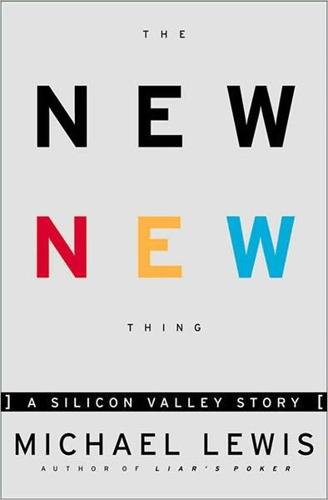
The New New Thing: A Silicon Valley Story
by
Michael Lewis
Published 29 Sep 1999
The metaphor that Romer used to describe the economy to noneconomists was of a well-stocked kitchen waiting for a brilliant chef to exploit it. Everyone in the kitchen starts with more or less the same ingredients, the metaphor ran, but not everyone produces good food. And only a very few people who wander into the kitchen find entirely new ways to combine old ingredients into delightfully tasty recipes. These people were the wealth creators. Their recipes were wealth. Electricity. The transistor. The microprocessor. The personal computer. The Internet. It followed from the theory that any society that wanted to become richer would encourage the traits, however bizarre, that led people to create new recipes. "A certain tolerance for nonconformism is really critical to the process," as Romer put it.
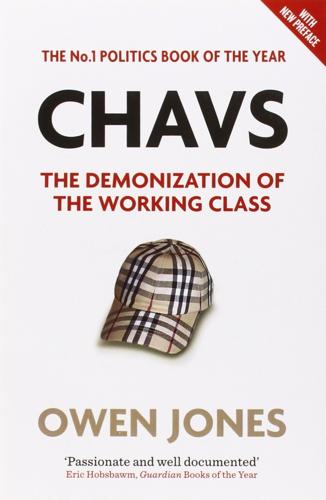
Chavs: The Demonization of the Working Class
by
Owen Jones
Published 14 Jul 2011
But politicians will argue that it is electorally impossible to introduce progressive policies that upset supposedly crucial, but completely misconstrued, 'Middle Britain' swing voters. It even became fashionable among many politicians and commentators to celebrate inequality. Inequality is good because itpromotes competition, goes the theory, and it shows that the people at the top are generating wealth. The corollary of this is the idolization of the rich as 'wealth creators' and entrepreneurs, who have achieved success purely through their own hard work and talent. The class politics of the wealthy has proved extraordinarily effective at demolishing its opponents. Itloudly asserts-c-as Margaret Thatcher famously put it-that 'There Is No Alternative'. Policies that promote the interests of the wealthiest are presented as necessary for the wellbeing of society as a whole.
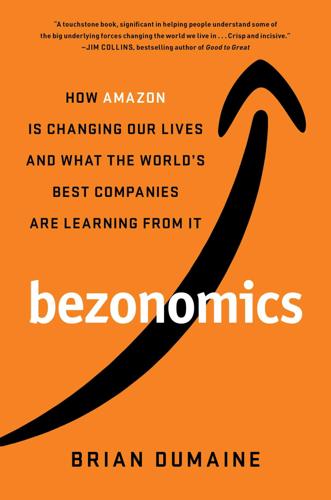
Bezonomics: How Amazon Is Changing Our Lives and What the World's Best Companies Are Learning From It
by
Brian Dumaine
Published 11 May 2020
This is how a machine learns. Because of such predictions, a customer can order a video-game player on Amazon and receive it eight minutes later. It’s almost as if Amazon’s software knows what customers will order before they order it. Eerie. Those who understand and can execute such systems will be the big wealth creators of the future. Bezos has applied—at an unprecedented scale—big data and AI to push his flywheel, and by doing so, he has created a new turbocharged way of thinking that will change the way successful businesses are run in the twenty-first century. He is applying or will apply this turbocharged flywheel not just to retailing but to a long list of industries on Amazon’s radar: media, health care, banking, shipping, and more.
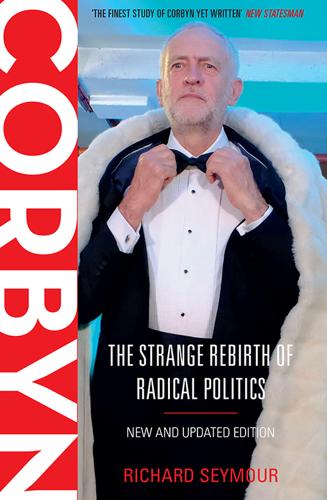
Corbyn
by
Richard Seymour
In this view, the goal of efficient government would be to make investors as happy as possible, and watch the wealth and contentment pile up. But the economy is inherently political. It works, insofar as it does, through a tacit compromise between owners and wage-earners. Despite the hallelujahs and hosannahs for ‘wealth creators’ that politicians of centre-Right and centre-Left are inclined to engage in, businesses only bother to generate prosperity if the circumstances are acceptably profitable to them.24 Employees, meanwhile, have to at least implicitly agree to the conditions that are necessary for profit-making. Stable governments are those which are able to secure a compromise between classes on the conditions of future growth.
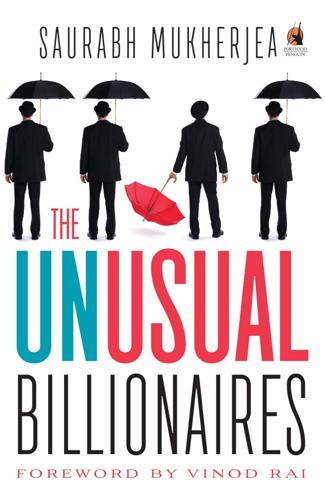
The Unusual Billionaires
by
Saurabh Mukherjea
Published 16 Aug 2016
Similarly, in India, Tata Consultancy Services (TCS) is India’s largest company by market cap. TCS’s market capitalization went up to Rs 4.8 lakh crore in 2015 from Rs 0.6 lakh crore in 2004, implying a growth rate of 20 per cent per annum. This was much higher than the Sensex’s growth rate of 13.3 per cent per annum over the same period, making TCS an enormous wealth creator for its investors. Surely, this achievement suggests that TCS is a great company. Whilst there is no disputing TCS’s or Apple’s stature, measures of a company’s greatness based on stock price tend to be short-sighted. Stock prices change every day, whereas greatness is meant to be an enduring quality.
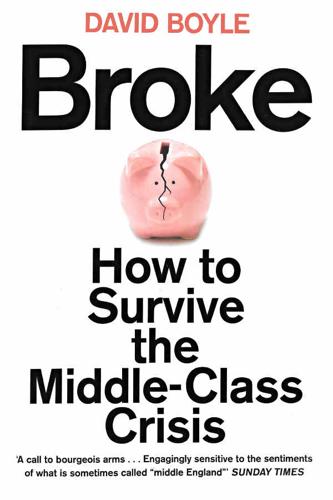
Broke: How to Survive the Middle Class Crisis
by
David Boyle
Published 15 Jan 2014
It is not happening in the same way in most continental economies, so it must be the result of political decisions, yet no political party could possibly be elected on that kind of promise. The financial elite — the One Per Cent — are more embattled, but so far they still have the political elite on their side, still convinced that these are somehow wealth creators, despite mounting evidence that the financial sector has evolved into something which siphons wealth away from the middle classes and into the hands of the Masters of the Universe. This is what Paul Woolley calls a ‘perfect storm of wealth destruction’.[32] It is a system that has been created, perhaps unintentionally, to extract wealth, loading down the real economy with debt, adding to the cost of living with speculative bubbles and the constant fees and deductions on every transaction, while governments find themselves forced to underwrite loans to productive business.
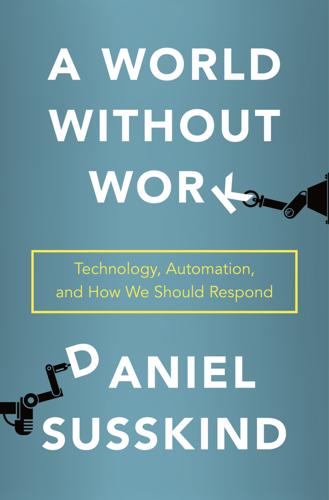
A World Without Work: Technology, Automation, and How We Should Respond
by
Daniel Susskind
Published 14 Jan 2020
That same Machinists Union remains in action today, striking a deal with Uber that provides its New York drivers with a spread of benefits, for example. Leslie Hook, “Uber Strikes Deal with Machinists Union for New York Drivers,” Financial Times, 10 May 2016. 17. Lawrence Summers, “Robots Are Wealth Creators and Taxing Them Is Illogical,” Financial Times, 5 March 2017. 18. Both where the traditional capital is saved (the “stock”) and the income that streams to those who own it (the “flow”). Piketty similarly called for a global tax on capital; see Piketty, Capital in the Twenty-First Century. 19.
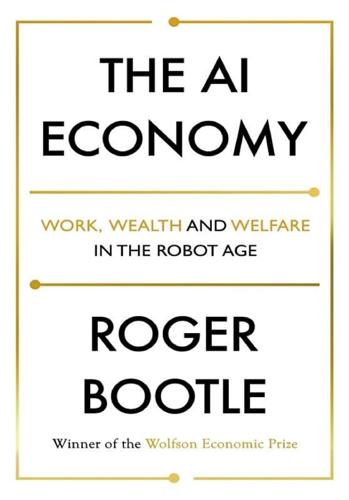
The AI Economy: Work, Wealth and Welfare in the Robot Age
by
Roger Bootle
Published 4 Sep 2019
J. (2017) The robot that takes your job should pay taxes, says Bill Gates, Quartz, February 17, https://qz.com/911968/bill-gates-the-robot-that-takes-your-job-should-pay-taxes. 6 Walker, J. (2017) Robot Tax – A Summary of Arguments ‘For’ and ‘Against,’ Techemergence, October 24, 2017, https://www.techemergence.com/robot-tax-summary-arguments/. 7 Isaac, A. and Wallace, T. (2017) Return of the Luddites: why a robot tax could never work, The Daily Telegraph, September 27, 2017, https://www.telegraph.co.uk/business/2017/09/27/return-luddites-robot-tax-could-never-work/. 8 Walker, J. (2017), op. cit. 9 Ibid. 10 Reuters (2017) European Parliament calls for robot law, rejects robot tax, February 16, https://www.reuters.com/article/us-europe-robots-lawmaking/european-parliament-calls-for-robot-law-rejects-robot-tax-idUSKBN15V2KM 11 See Abbott, R. and Bogenschneider, B. (2017) Should Robots Pay Taxes? Tax Policy in the Age of Automation, Harvard Law & Policy Review, Vol. 12, p. 150. 12 L. Summers (2017) Robots are wealth creators and taxing them is illogical, Financial Times, March 5. 13 R. J. Shiller (2017) “Robotization without Taxation?,” Project Syndicate, http://prosyn.org/Rebz6Jw. 14 Tegmark, M. (2017) Life 3.0: Being Human in the Age of Artificial Intelligence, London: Allen Lane., p. 273. 15 Dvorsky, G. (2017) Hackers have already started to weaponize artificial intelligence, Gizmodo, November 9, https://gizmodo.com/hackers-have-already-started-to-weaponize-artificial-in-1797688425. 16 Ibid. 17 House of Lords Committee Report, session 2017-19, HL Paper 100, April 16, 2018, p. 95. 18 Quoted in (2016) Robotics and Artificial Intelligence, House of Commons Science and Technology Committee, Fifth Report of Session 2016-17, HC 145, London: House of Commons. 19 Ibid., p. 18. 20 For an analysis of these issues, see (2017) Data Management and Use: Governance in the Twenty-first Century, London: British Academy and the Royal Society, https://royalsociety.org/~/media/policy/projects/data-governance/data-management-governance.pdf. 21 Globe editorial (2018) When tech companies collect data, bad things can happen, January 30, https://www.theglobeandmail.com/opinion/editorials/globe-editorial-when-tech-companies-collect-data-bad-things-can-happen/article37798038/ 22 Baker, P. (2018) Reining In Data-Crazed Tech Companies, April 16, https://www.ecommercetimes.com/story/85278.html 23 Solon, O. (2018) Facebook says Cambridge Analytica may have gained 37m more users data, The Guardian, April 4, https://www.theguardian.com/technology/2018/apr/04/facebook-cambridge-analytica-user-data-latest-more-than-thought 24 Frischmann, B. (2018) Here’s why tech companies abuse our data: because we let them, The Guardian, April 10, https://www.theguardian.com/commentisfree/2018/apr/10/tech-companies-data-online-transactions-friction 25 Stucke, M.

All That Glitters: A Story of Friendship, Fraud, and Fine Art
by
Orlando Whitfield
Published 5 Aug 2024
I soon arrived at a white-painted shopfront on a Mayfair street overrun with Lamborghinis. The air was hazy with cigar smoke from the restaurant terrace next door. All around me people spoke in heavily accented English; but these were not the kinds of polyglots whom nationalists bemoan. These people were the wealth creators, the patron saints of economic turbocharging. I felt out of place as I fastened my bicycle to a black- and gold-painted lamppost. The large windows were papered over and there was a rectangular hole next to the door where the bell was meant to be. I knocked on the window and waited. I was about to knock again when I heard a voice from far behind the door coming slowly closer, like the sound of water draining out of a bath.
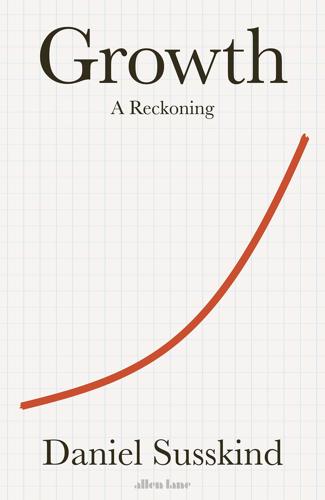
Growth: A Reckoning
by
Daniel Susskind
Published 16 Apr 2024
The US is a good example: the share of wealth owned by the top 0.1 per cent of Americans is not only large, but has risen steadily for half a century, such that it is now the same as the share of wealth owned by the bottom 90 per cent of the US population combined. An intuitive response to these trends is a wealth tax. But the idea is controversial for good reasons: some worry that ‘wealth creators’ would work less hard in response, others that they might even flee the country. And the combined effect – lower effort, higher risk of flight – suggests a hit to economic growth. Again, for some this hit is a fatal blow to the proposed policy. But a weak degrowther could accept that more equality means less growth and still impose the tax, believing it to be a price worth paying for a fairer society.
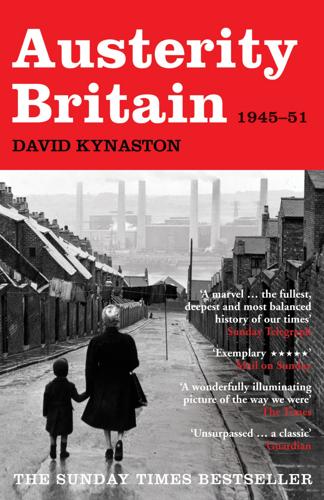
Austerity Britain: 1945-51
by
David Kynaston
Published 12 May 2008
All in all, in Britain’s unexpectedly harsh post-war circumstances, these 20 Labour politicians ‘found themselves in a plight to which a lifetime’s assumptions were quite inappropriate, for instead of redistributing wealth they were faced with the urgent and immensely more difficult task of creating it’. The Barnett version carries a powerful charge, and certainly it is difficult to see the first Chancellor, Hugh Dalton, for all his being the author of an often reprinted textbook entitled Principles of Public Finance, as one of nature’s wealth-creators. ‘Stop talking details, Nicholas! Stick to principles!’ he would boom whenever his friend Nicholas Davenport, City economist and writer, tried to explain the workings of capitalism’s citadel. But his successor Stafford Cripps was a significantly different economic animal. The diary of Raymond Streat, who first got to know Cripps when he was still President of the Board of Trade, reveals an initial deep scepticism eventually giving way to outright admiration for his grasp of detail, superb brain and unmistakable sincerity of purpose.
…
‘Four years after starting work at Pilkingtons, he conceived the idea that molten glass could be formed into a continuous ribbon by pouring it into a bath of tin and “floating” it while it cooled.’14Such was the revolutionary float-glass process, eventually to become world-famous. It had been a triumph of not-quite-nepotistic recruitment. For every wealth-creator, unfortunately, there was at least one Lord Portal of Hungerford. An ace fighter pilot in one world war, Chief of the Air Staff in another, his first big peacetime job (1946–51) was as Controller of Atomic Energy. ‘I cannot remember that he ever did anything that helped us,’ the very able Christopher Hinton, responsible for the production of fissile material, unsentimentally recalled.
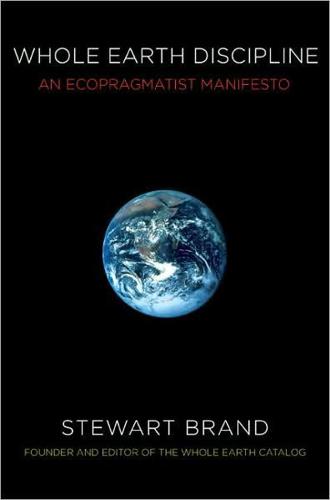
Whole Earth Discipline: An Ecopragmatist Manifesto
by
Stewart Brand
Published 15 Mar 2009
It drew in and consumed . . . . . . and gave back the dung from its pens, and the soot from its chimneys, and steel, and saucepans, and all the tools by which its food was made. And also clothes, and fashions, and ideas, and interesting vices, songs, and knowledge, and something which, if looked at in the right light, was called civilization. That was what civilization meant. It meant the city. —Terry Pratchett, Night Watch Cities are wealth creators; they always have been. They are population sinks, and always have been. Just as agriculture raised the world’s carrying capacity for humans, so did cities. The death rate from “constant battles” declined with urbanization, LeBlanc says, because “as the city folk make tools and improve the technologies that make the farming more efficient, more people can live in the city instead of farming, and the cities grow.
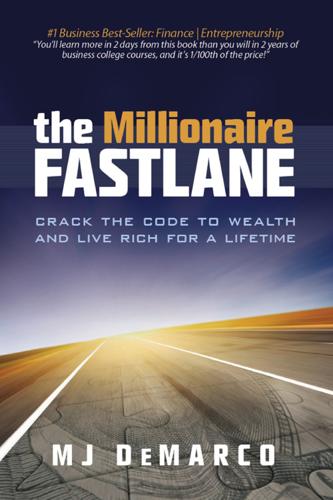
The Millionaire Fastlane: Crack the Code to Wealth and Live Rich for a Lifetime
by
Mj Demarco
Published 8 Nov 2010
As violations accrue, the road degrades in its wealth potential, and with it, your ability to get near Effection also degrades. While it's possible to violate one or more commandments and still create wealth quickly, you should aim for a road that satisfies all five commandments. Potent roads are potent wealth creators. Sadly, most business opportunities fail the commandments, and, if they fail, they don't deserve your respect or attention. Chapter Summary: Fastlane Distinctions Not all businesses are the right road. Few roads move at, through, or near the Law of Effection. The best roads and the purest Fastlanes satisfy the Five Fastlane Commandments: Need, Entry, Control, Scale, and Time
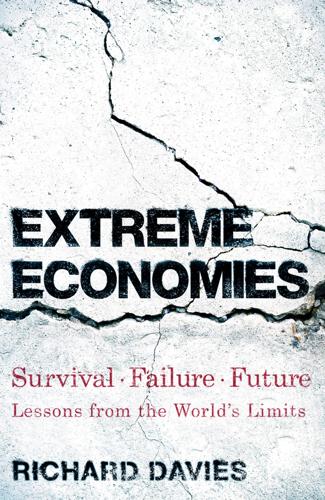
Extreme Economies: Survival, Failure, Future – Lessons From the World’s Limits
by
Richard Davies
Published 4 Sep 2019
(ed.), Trust: Making and Breaking Cooperative Relations (Oxford: Blackwell). Perry, R., (1844), Facts and Observations on the Sanitary State of Glasgow, Shewing the Connections Existing Between Poverty, Disease, and Crime (Glasgow: Gartnaval Press). Peters, C. M. (1990), Glasgow’s Tobacco Lords: An Examination of Wealth Creators in the Eighteenth Century, PhD thesis, University of Glasgow. Potter, A. and Watts, H. D. (2012), ‘Revisiting Marshall’s Agglomeration Economies: Technological Relatedness and the Evolution of the Sheffield Metals Cluster’, Regional Studies, May. Pulteney, W. A. (1844), Observations on the Epidemic Fever of MDCCCXLIII in Scotland and Its Connection with the Destitute Condition of the Poor (Edinburgh: William Blackwood & Sons).
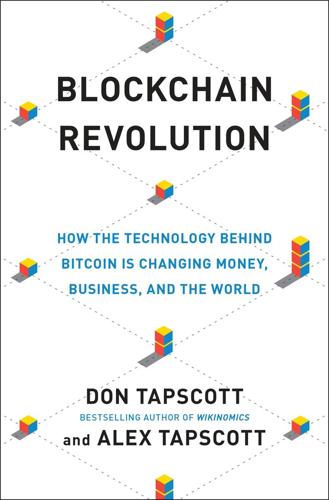
Blockchain Revolution: How the Technology Behind Bitcoin Is Changing Money, Business, and the World
by
Don Tapscott
and
Alex Tapscott
Published 9 May 2016
Reconfiguring the Corporation as the Engine of Capitalism With the rise of a global peer-to-peer platform for identity, trust, reputation, and transactions, we will finally be able to re-architect the deep structures of the firm for innovation, shared-value creation, and perhaps even prosperity for the many, rather than just wealth for the few. This doesn’t mean smaller firms in terms of revenue or impact. To the contrary, we’re talking about building twenty-first-century companies, some that may be massive wealth creators and powerful in their respective markets. We do think enterprises will look more like networks rather than the vertically integrated hierarchies of the industrial age. As such there is an opportunity to distribute (not redistribute) wealth more democratically. We’ll also take you on a stroll through the mind-boggling world of smart contracts, new autonomous economic agents, and what we call distributed autonomous enterprises where intelligent software takes over the management and organization of many resources and capabilities, perhaps displacing corporations.
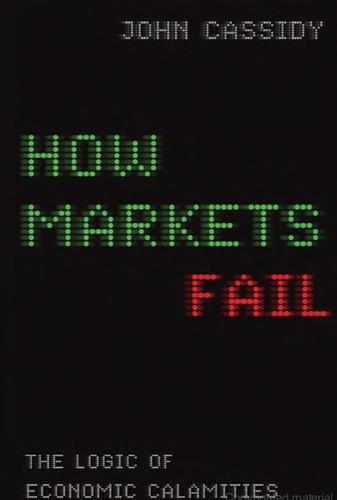
How Markets Fail: The Logic of Economic Calamities
by
John Cassidy
Published 10 Nov 2009
“By taxation, by inflation, by the remorseless flood of regulations and legislation, by controls and by the constant and arbitrary interventions of authority, successive governments since the war have cumulatively taken away both the pleasure and the rewards that once made risk-taking worthwhile,” Sir Keith Joseph, the primary intellectual architect of Thatcherism, said in 1976. “By this attitude we have driven out some wealth-creators; discouraged others; shrivelled the impulse to expand and throttled enterprise.” Margaret Thatcher and Ronald Reagan both got elected on promises to restore incentives to work and invest. They were viewed as economic radicals, but much of what they said was common sense. Beyond a certain level—what it is can be debated—taxes discourage effort and encourage evasion.
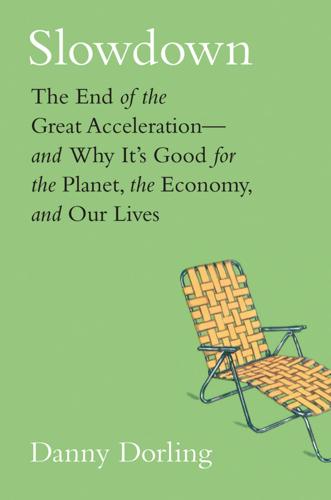
Slowdown: The End of the Great Acceleration―and Why It’s Good for the Planet, the Economy, and Our Lives
by
Danny Dorling
and
Kirsten McClure
Published 18 May 2020
This has been, and will be, a very long process, but the overall arc is bending toward rising equality. In 1883 the phrase labour-giver, meaning one who provides work, was derided in the preface to the third edition of Karl Marx’s Das Kapital.11 Today we are still having to explain how stupid the term wealth creator is to describe those who simply happen to be so rich that they can invest. Every large profitable investment ultimately derives from the debts or poverty of the many, and increasingly brings about diminishing returns for the investors compared to the returns they used to reap when population and markets were growing so fast.
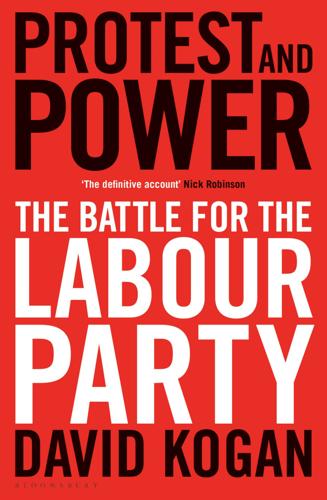
Protest and Power: The Battle for the Labour Party
by
David Kogan
Published 17 Apr 2019
Tony Blair and Gordon Brown, who themselves were entitled to honours when they left office but didn’t take them, used the system in a way that was open to accusations of cronyism. There were plenty of people given honours by New Labour: Fred Goodwin, Philip Green and Alan Sugar to name a few, who would not have been thought of as natural recipients of honours from a Labour government. This hero worship for ‘wealth creators’ and ‘people who get things done’ took on a much more insidious form when it came to party finance. The desire to raise money led to the first problem, when it was revealed in January 1997 that Bernie Ecclestone, then chief executive of the Formula One Group, had made a £1 million donation to Labour before the election.
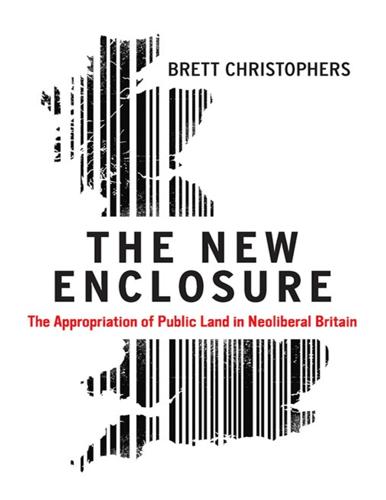
The New Enclosure: The Appropriation of Public Land in Neoliberal Britain
by
Brett Christophers
Published 6 Nov 2018
Just six of the top 100 made their money from industry, and seven from retail. Finance and investment have 10 entries apiece.’1 Such, one might say, is the personification of rentier capitalism. ‘Let’s talk about the real money’, George Monbiot wrote in 2014. ‘The Westminster government claims to champion an entrepreneurial society, of wealth creators and hard-working families, but the real rewards and incentives are for rent.’1 In privatizing public land, successive neoliberal British governments have merely redoubled those rewards and incentives, and thus actively reinforced rentier dynamics. The country is reaping the consequences. Social dislocation Alongside Adam Smith, another influential figure whose understanding of land commodification and its implications I discussed in Chapter 1 was Karl Polanyi.
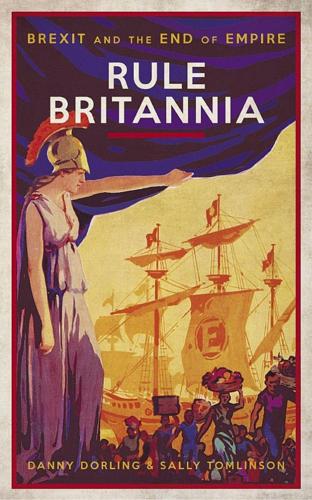
Rule Britannia: Brexit and the End of Empire
by
Danny Dorling
and
Sally Tomlinson
Published 15 Jan 2019
As we demonstrated in the chapters above, many still incorrectly extrapolate Darwinian ideas and use them to argue that the world is a place of rampant competition in which Britain has to fight to survive, that it will either sink or swim, and that this is entirely the natural way of things. They suggest that to deny that is to deny reality,17 implying that the poverty created in Britain (by not properly taxing accumulators, also known as ‘wealth creators’) is unavoidable. In Britain, the poor, they say, will always be with us, casualties of a law of nature. While not naming names, Brown’s comments above might have been referring to Lord Ashcroft, who supported voting to leave the EU and wrote a short book giving his views on why Leave happened.18 Earlier, when writing about himself, Lord Ashcroft explained, ‘When my parents first learned that they were going to British Honduras, they had to study an atlas to discover its precise location in Central America.’19 Ashcroft’s father was an ‘administrator in the Colonial Service’, a British civil servant who worked for the empire.
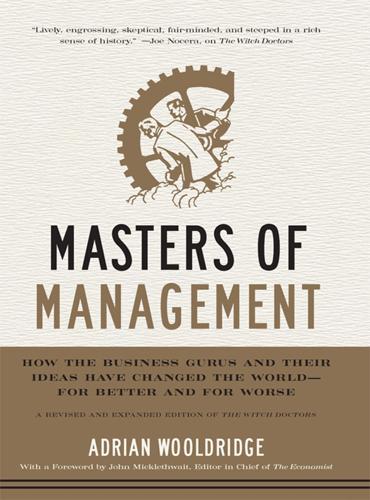
Masters of Management: How the Business Gurus and Their Ideas Have Changed the World—for Better and for Worse
by
Adrian Wooldridge
Published 29 Nov 2011
The most obvious thing is the idea that business is more efficient than government. Margaret Thatcher never tried to hide her belief that civil servants were simpering do-gooders who went into public service because they were too unimaginative or left wing to go into business. Tony Blair loved mixing with “wealth creators” such as Virgin’s Richard Branson and BP’s John Browne. Even Gordon Brown, who was much more emotionally committed to the public sector than Blair, and who poured money into the public sector when he became prime minister, was unhappy with Whitehall’s mandarin elite. He repeatedly talked about reinventing government and “transforming” the civil service, and relied heavily on outside advisors from management consulting and business.
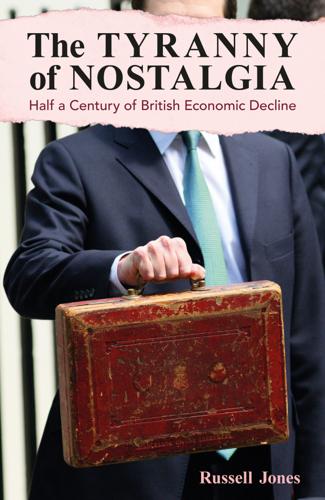
The Tyranny of Nostalgia: Half a Century of British Economic Decline
by
Russell Jones
Published 15 Jan 2023
Counter-Revolution By taxation, by inflation, by the remorseless flood of regulations and legislation, by controls and by the constant and arbitrary interventions of authority, successive governments since the war have cumulatively taken away both the pleasure and the rewards that once made risk-taking worthwhile. By this attitude we have driven out some wealth creators; discouraged others; shrivelled the impulse to expand and throttled enterprise. — Sir Keith Joseph, October 19761 the tories move on The Barber boom and bust, together with its political fallout, was a chastening episode for the Conservative Party, while the subsequent trials and tribulations of the Wilson and Callaghan governments did nothing to encourage the Tories to abide by Keynesian principles of economic management.
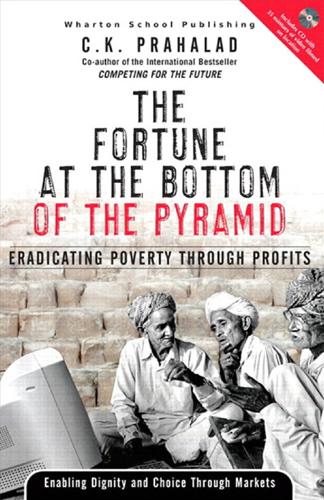
The fortune at the bottom of the pyramid
by
C. K. Prahalad
Published 15 Jan 2005
How does this transform the basis for commercial transactions within a developing economy? Learning the Sanctity of Contracts Underpinning this ecosystem is education across all levels. The individual entrepreneur in the village—the Shakti Amma, for example—is being educated to be a responsible entrepreneur. She is a wealth creator in her village. She learns about products, prices, returns, and being an advisor and helper to her customers in the village. When I interviewed one Shakti Amma, who had been an entrepreneur for less than six months, the impact of being part of the ecosystem became obvious. The conversation went something like this: Q: If you could have any wish you want granted, what would your top three wishes be?
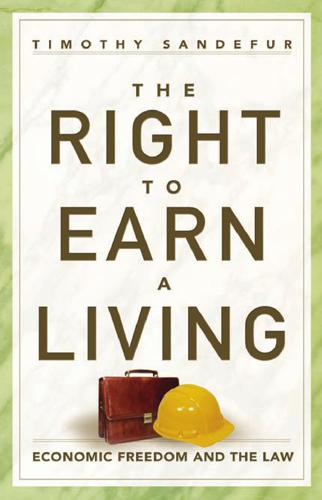
The Right to Earn a Living: Economic Freedom and the Law
by
Timothy Sandefur
Published 16 Aug 2010
As the lead attorney in the economic liberty project at the Pacific Legal Foundation, I have had a unique opportunity to observe up close the unfair and oftenludicrous restrictions imposed on America’s hardest-working citizens. Dozens of the cases described in this book are ones in which I participated either by representing entrepreneurs or by filing friendof-the-court briefs in defense of important economic freedoms. The opportunity to work with America’s wealth creators, by defending their moral and constitutional right to earn a living, has been among the great experiences of my life. The pages that follow cover a variety of issues relating in different ways to the right to earn a living, proceeding in a roughly chronological fashion. Beginning with the common-law tradition of legal protections for economic liberty, we will see how 17th- and 18th-century judges came to recognize the individual right to earn a living as part of their attack on royal monopolies.
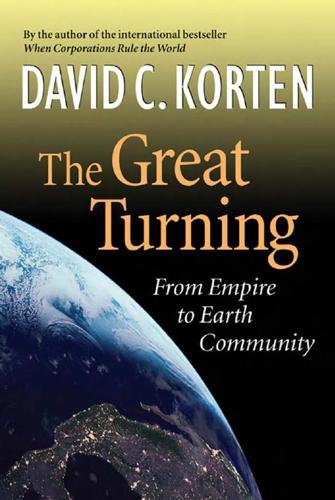
The Great Turning: From Empire to Earth Community
by
David C. Korten
Published 1 Jan 2001
The guiding mantra is create beneficial local options, take only what you need, and accept responsibility for the whole. The rules favor absentee owners, monopoly-scale enterprises, financial speculators, rights of property, and central planning by global corporations. The rules favor participating owners, human-scale enterprises, wealth creators, rights of people, and self-organization by people and communities. Denying any responsibility for public interests, proponents seek to secure impermeable boundaries around the exclusive private interests of corporations and their wealthiest owners, while demanding that communities eliminate any borders protective of public interests.

When the Iron Lady Ruled Britain
by
Robert Chesshyre
Published 15 Jan 2012
There were Mercedes, BMWs, Audis outside many homes (most of them are company perks); it was hard to park at night; neighbourhood car pools swept children away to fee-paying academies; quite modest homes changed hands for sums that a decade earlier would have made someone very rich. Such wealth seemed unreal: what was being done to justify it? Had Britain become overnight a nation of risk-takers and wealth creators? Was I surrounded by entrepreneurs? It seemed unlikely. They did not seem men of the stamp I had known in the States: this had to be some form of North Sea Bubble. There had been a lack of financial reality about Washington DC, with lobbyists and lawyers creaming millions of dollars off the federal government and off their clients, but in 1981, when we went there, at least the country was rich and productive enough to afford them.
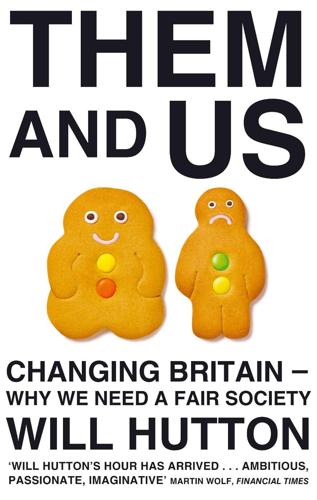
Them And Us: Politics, Greed And Inequality - Why We Need A Fair Society
by
Will Hutton
Published 30 Sep 2010
The British have never taken competition seriously: the left has preferred to think of alternatives to capitalism rather than try to improve it; the right has never seen the merit of a robust regime in which incumbent and powerful firms are challenged, curbed or even dismantled. Companies are self-professed ‘wealth creators’ because they are in the private rather than the public sector. (They also give generously to the Conservative Party.) Why regulate them with competition inquiries? Yet an aggressive competition policy is an indispensable support to small firms, innovation and entrepreneurship. It keeps markets open, affords opportunity and makes it harder for incumbent firms to defend their franchises unfairly.
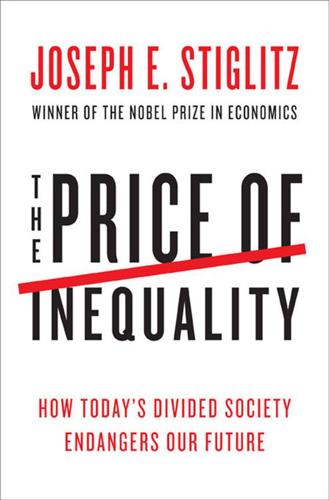
The Price of Inequality: How Today's Divided Society Endangers Our Future
by
Joseph E. Stiglitz
Published 10 Jun 2012
The latter typically subtracts from it, for in the process of taking it away, wealth gets destroyed. A monopolist who overcharges for his product takes money from those whom he is overcharging and at the same time destroys value. To get his monopoly price, he has to restrict production. Unfortunately, even genuine wealth creators often are not satisfied with the wealth that their innovation or entrepreneurship has reaped. Some eventually turn to abusive practices like monopoly pricing or other forms of rent extraction to garner even more riches. To take just one example, the railroad barons of the nineteenth century provided an important service in constructing the railroads, but much of their wealth was the result of their political influence—getting large government land grants on either side of the railway.
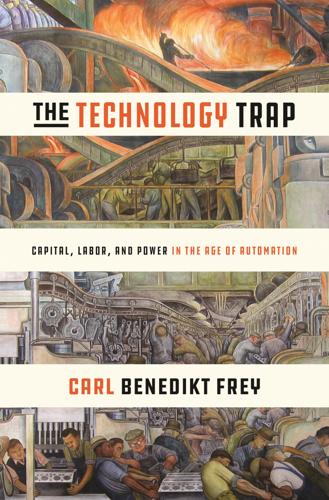
The Technology Trap: Capital, Labor, and Power in the Age of Automation
by
Carl Benedikt Frey
Published 17 Jun 2019
Murthy, 2014, “Top 10 Job Titles That Didn’t Exist 5 Years Ago (Infographic),” LinkedIn Talent Blog, January 6, https://business.linkedin.com/talent-solutions/blog/2014/01/top-10-job-titles-that-didnt-exist-5-years-ago-infographic. 16. M. Berg, 1976, “The Machinery Question,” PhD diss., University of Oxford, 2. 17. L. Summers, 2017, “Robots Are Wealth Creators and Taxing Them Is Illogical,” Financial Times, March 5. 18. C. Goldin and L. Katz, 2008, The Race between Technology and Education (Cambridge, MA: Harvard University Press), 1–2. 19. G. J. Duncan and R. J. Murnane, eds., 2011. Whither Opportunity? Rising Inequality, Schools, and Children’s Life Chances (New York: Russell Sage Foundation). 20.
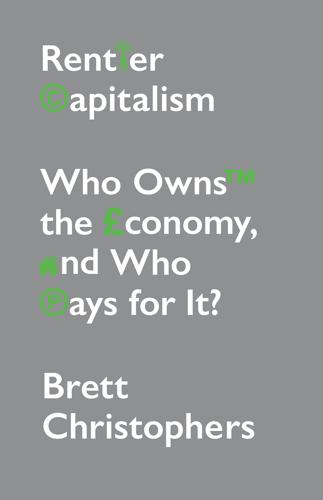
Rentier Capitalism: Who Owns the Economy, and Who Pays for It?
by
Brett Christophers
Published 17 Nov 2020
Brett Christophers First published by Verso 2020 © Brett Christophers 2020 All rights reserved The moral rights of the author have been asserted 1 3 5 7 9 10 8 6 4 2 Verso UK: 6 Meard Street, London W1F 0EG US: 20 Jay Street, Suite 1010, Brooklyn, NY 11201 versobooks.com Verso is the imprint of New Left Books ISBN-13: 978-1-78873-972-6 ISBN-13: 978-1-78873-973-3 (UK EBK) ISBN-13: 978-1-78873-974-0 (US EBK) British Library Cataloguing in Publication Data A catalogue record for this book is available from the British Library Library of Congress Cataloging-in-Publication Data A catalog record for this book is available from the Library of Congress Typeset in Adobe Garamond Pro by Hewer Text UK Ltd, Edinburgh Printed and bound by CPI Group (UK) Ltd, Croydon CR0 4YY The current transformation of capitalism is characterised by a full-fledged comeback and proliferation of forms of rent. Carlo Vercellone, 2008 Let’s talk about the real money. The Westminster government claims to champion an entrepreneurial society, of wealth creators and hard-working families, but the real rewards and incentives are for rent. George Monbiot, 2014 Contents List of Figures and Tables Acknowledgements Abbreviations Preface Introduction 1. The Functionless Investor Financial Rents 2. Carbon Neoliberalism Natural-Resource Rents 3.
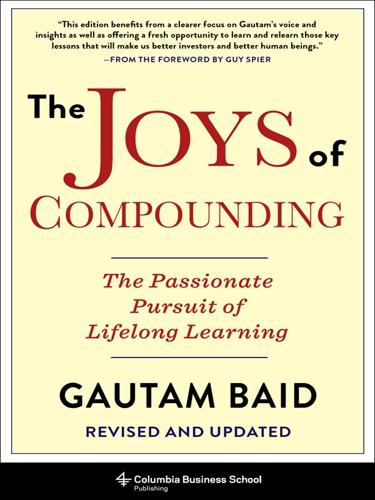
The Joys of Compounding: The Passionate Pursuit of Lifelong Learning, Revised and Updated
by
Gautam Baid
Published 1 Jun 2020
Source: Arun Kumar, The Eighty Twenty Investor (blog), October 11, 2019, used by permission of the author. TABLE 26.2 Largest drawdowns in the U.S. equity markets (S&P 500), 1929–present Did all this interim stock price volatility make even a slight dent in the long-term business performance of any of the many big wealth creators? No. During the usual periodic sharp corrections and the occasional recessions, keep Paul Harvey’s words in mind: “In times like these, it helps to recall that there have always been times like these.” Be a Keen Student of Financial History There is nothing new in the world except the history you do not know.
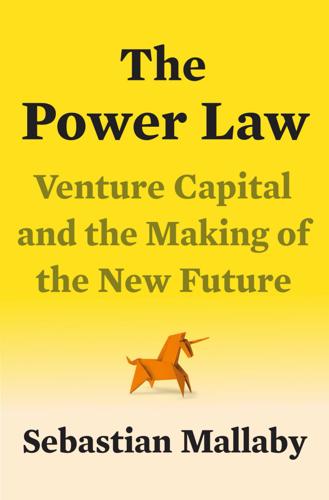
The Power Law: Venture Capital and the Making of the New Future
by
Sebastian Mallaby
Published 1 Feb 2022
These days, Sequoia realized, startup founders could be very young; this Zuckerberg was only twenty. In the new era of software ventures, entrepreneurs just needed a mastery of code, an idea for a product, and a maniacal focus. The meeting was set for 8:00 a.m. At 8:05 a.m., Zuckerberg had not shown up. Such were the hazards that VCs faced when wealth creators were practically adolescents. Botha got on the phone to check that the guest of honor was still coming. Presently, Zuckerberg and his buddy Andrew McCollum appeared at the Sequoia headquarters. They were not merely late. They were dressed in pajama bottoms and T-shirts. Don Valentine, by now retired, had come into the office that day and spied the boys in the lobby.

The Rise and Fall of the British Nation: A Twentieth-Century History
by
David Edgerton
Published 27 Jun 2018
‘These have been fourteen years of waste, years of neglect, years of decline. Fourteen years of casino economics – a speculators’ paradise – have plunged British industry into two record-breaking recessions.’ He noted, accurately, that economic growth was ‘lower than in the 1960s and the 1970s; investment in manufacturing – the vital wealth creator of our economy – lower than in 1979’. There were huge deficits in public finance and trade, and still 3 million out of work. He called these and others the ‘facts that mock the Tory hype and propaganda … that explode their so-called economic miracle: the so-called Thatcher revolution’.24 John Smith died suddenly, and with him this renewed Labour critique.
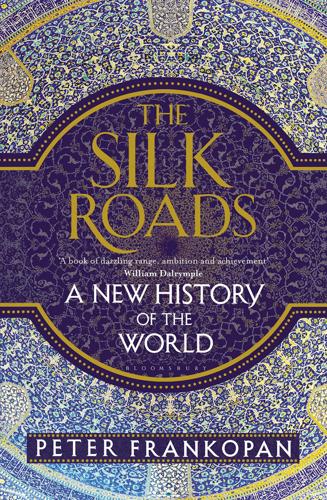
The Silk Roads: A New History of the World
by
Peter Frankopan
Published 26 Aug 2015
The loss of manpower in Bengal devastated local productivity. As revenues collapsed, costs suddenly rose sharply causing panic that the golden goose had laid its last egg. This prompted a run on the shares of the EIC and pushed the Company to the brink of bankruptcy.60 Far from its directors being superhuman administrators and wealth-creators, it turned out that the practices and culture of the Company had brought the intercontinental financial system to its knees. * * * After desperate consultation, the government in London concluded that the EIC was too big to fail and agreed a bail-out. To fund this, however, cash had to be raised.